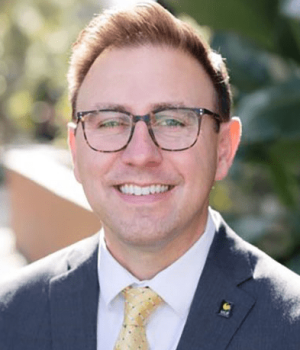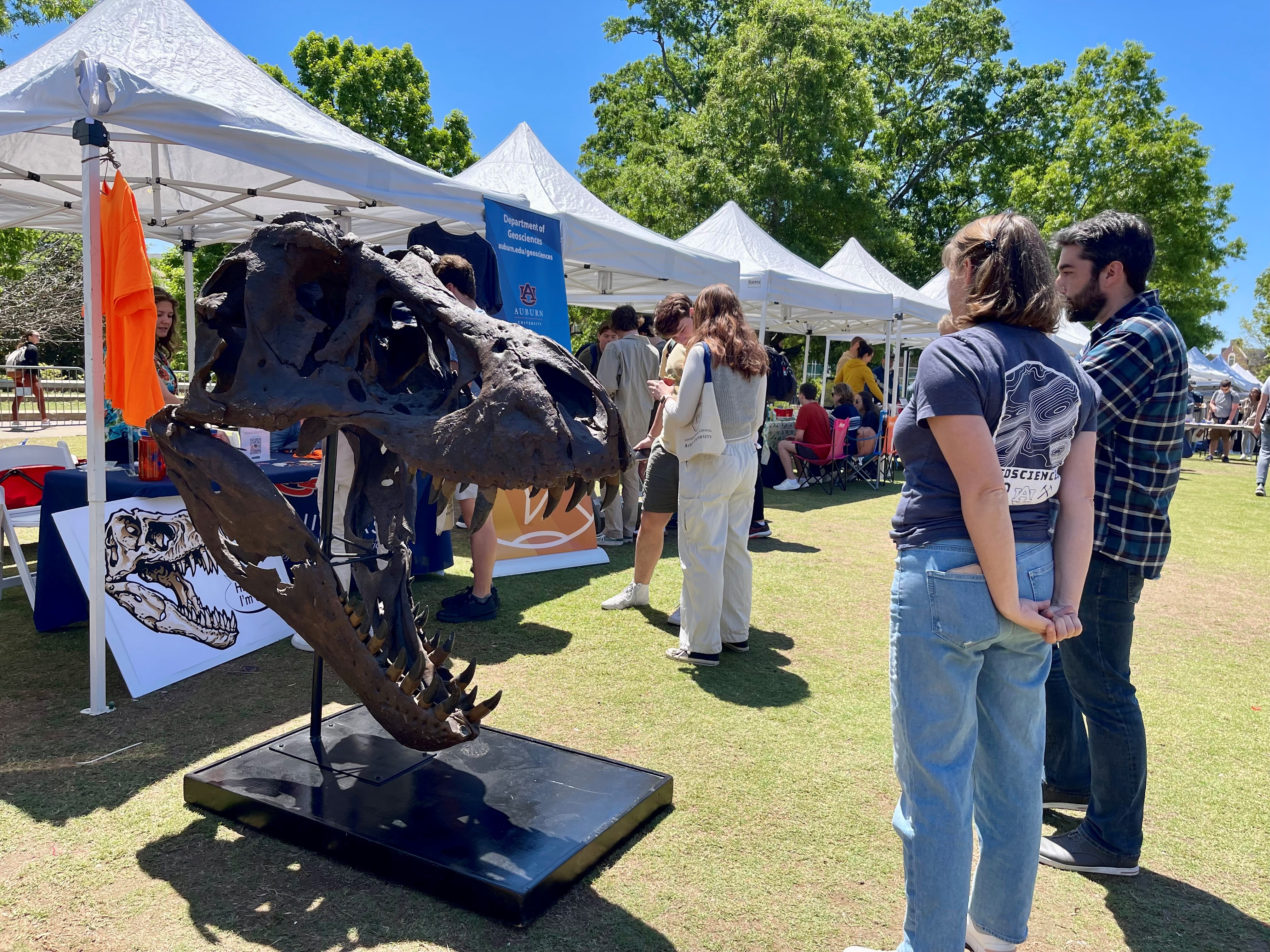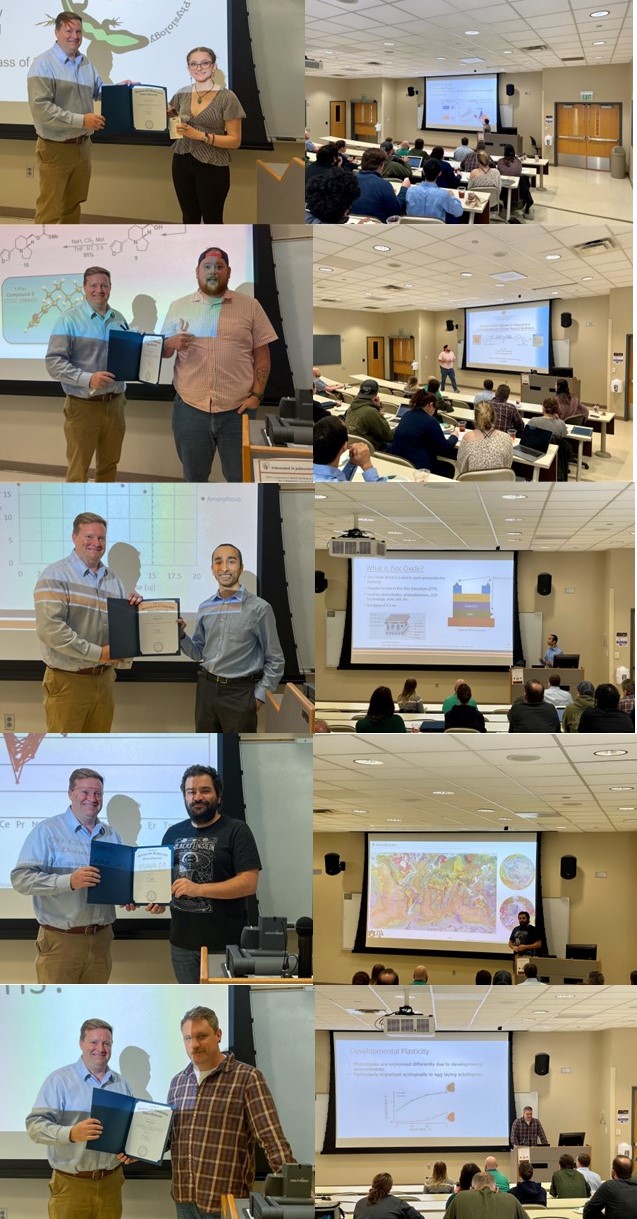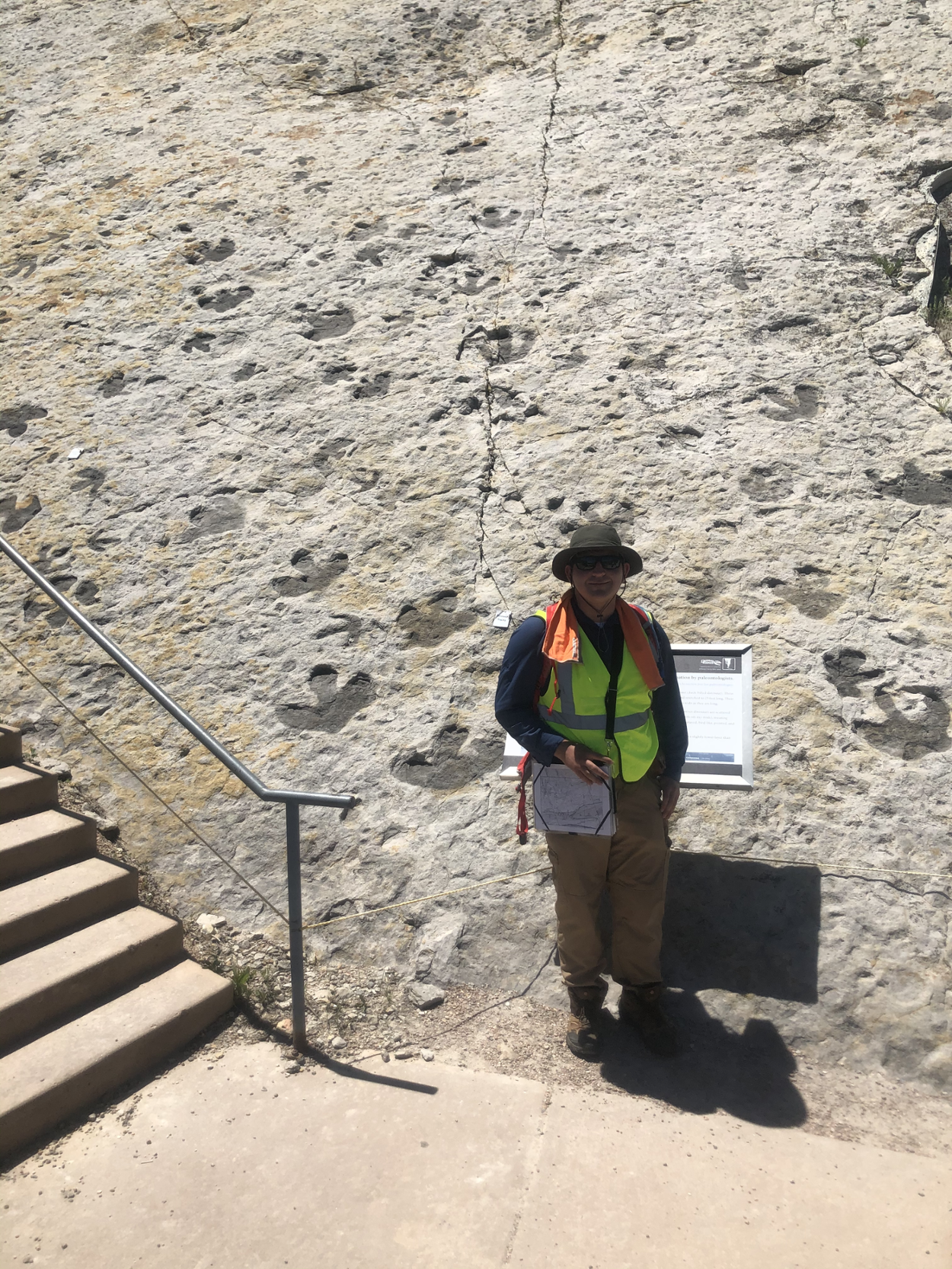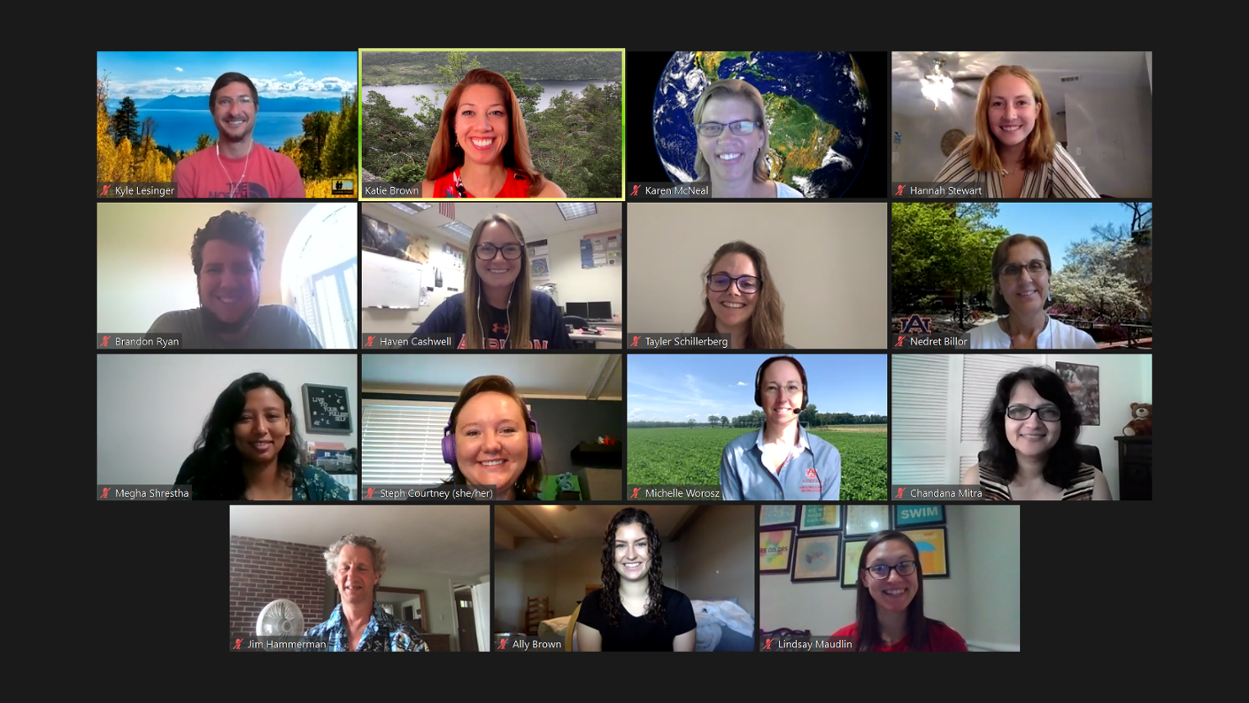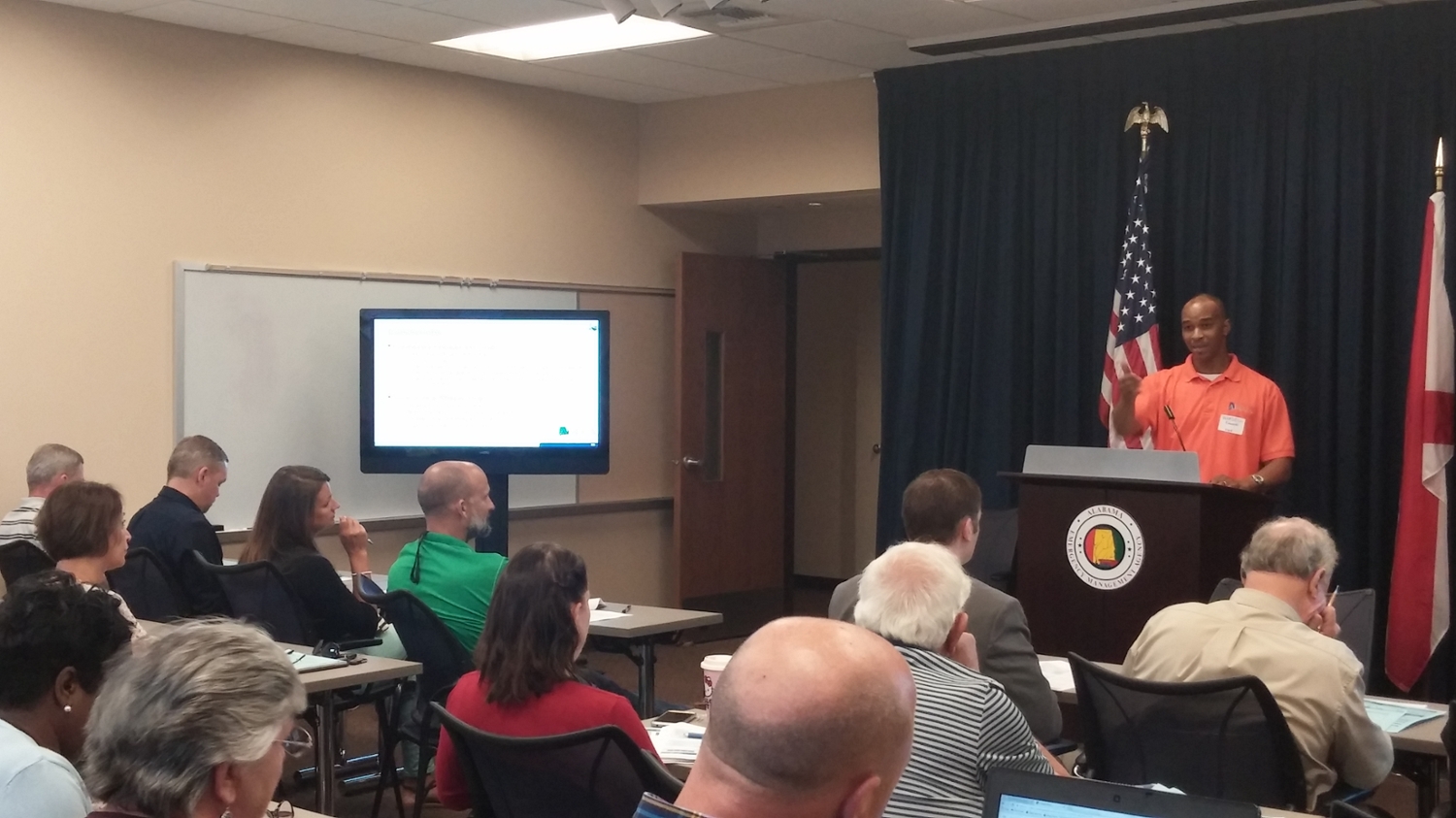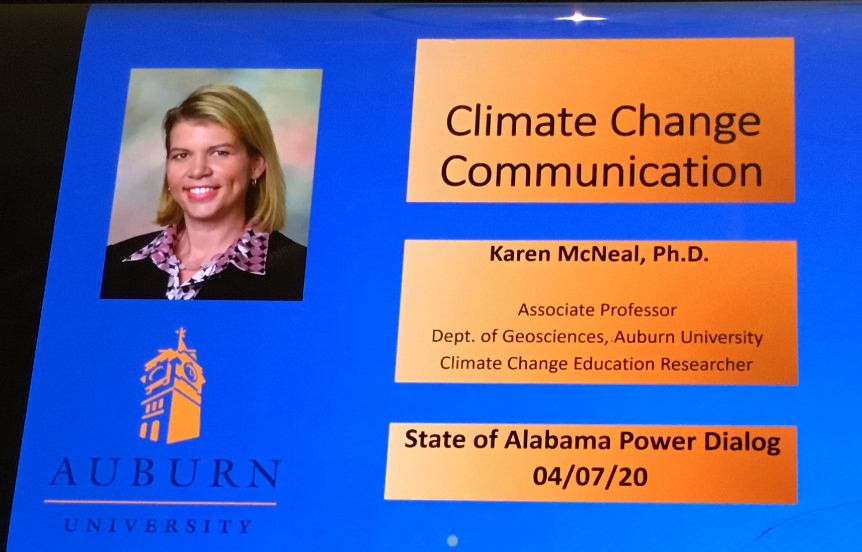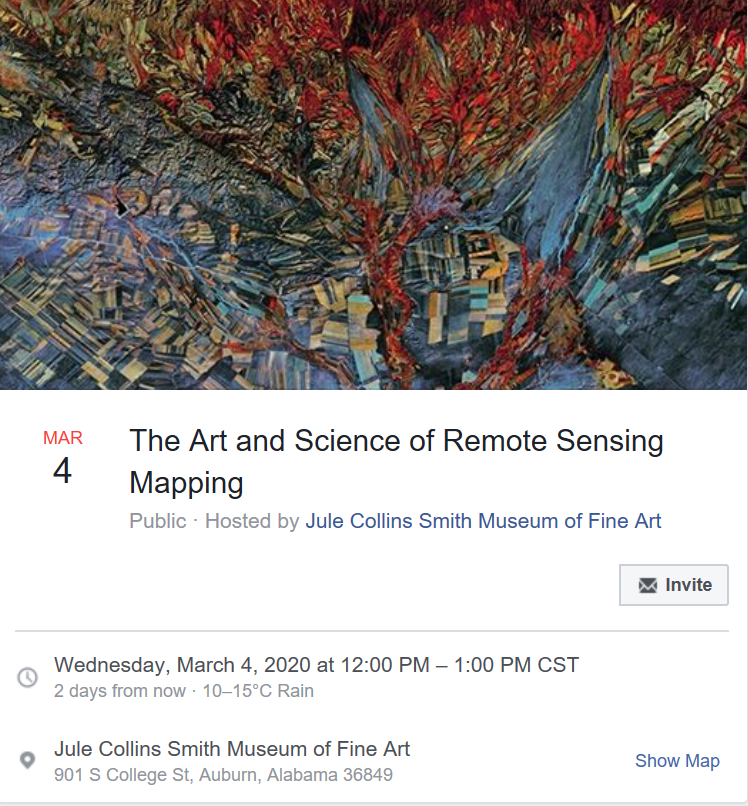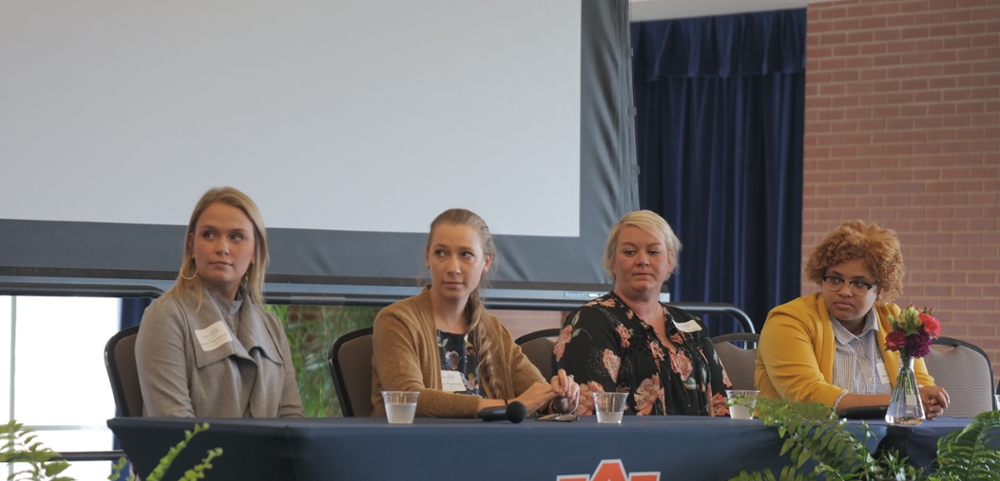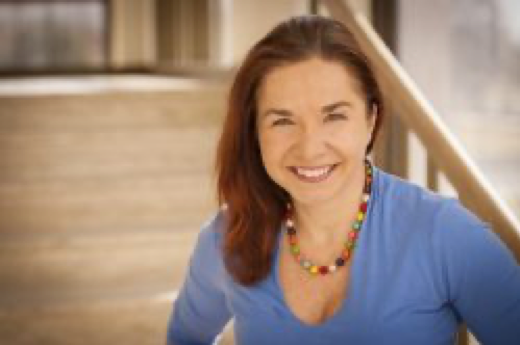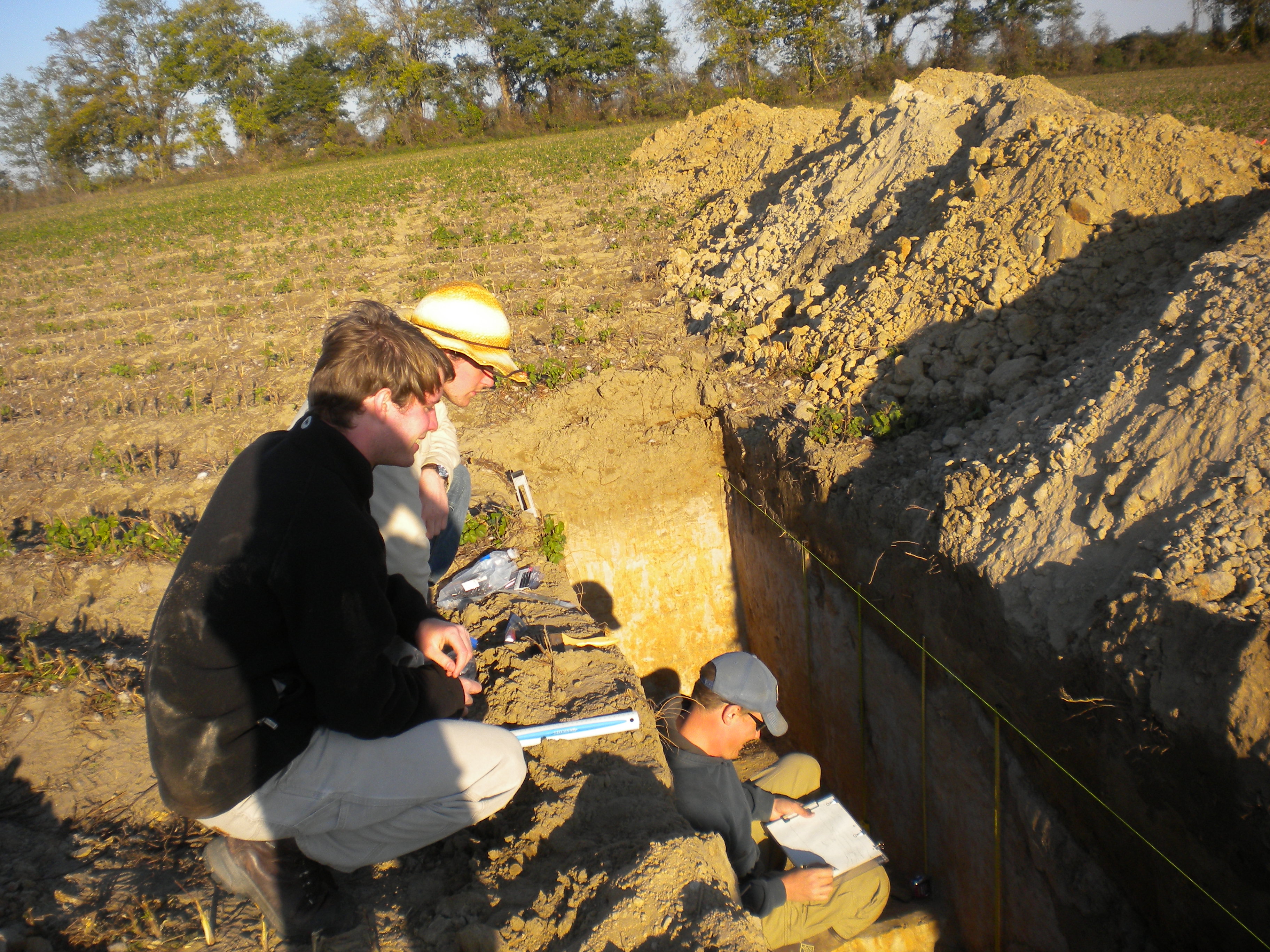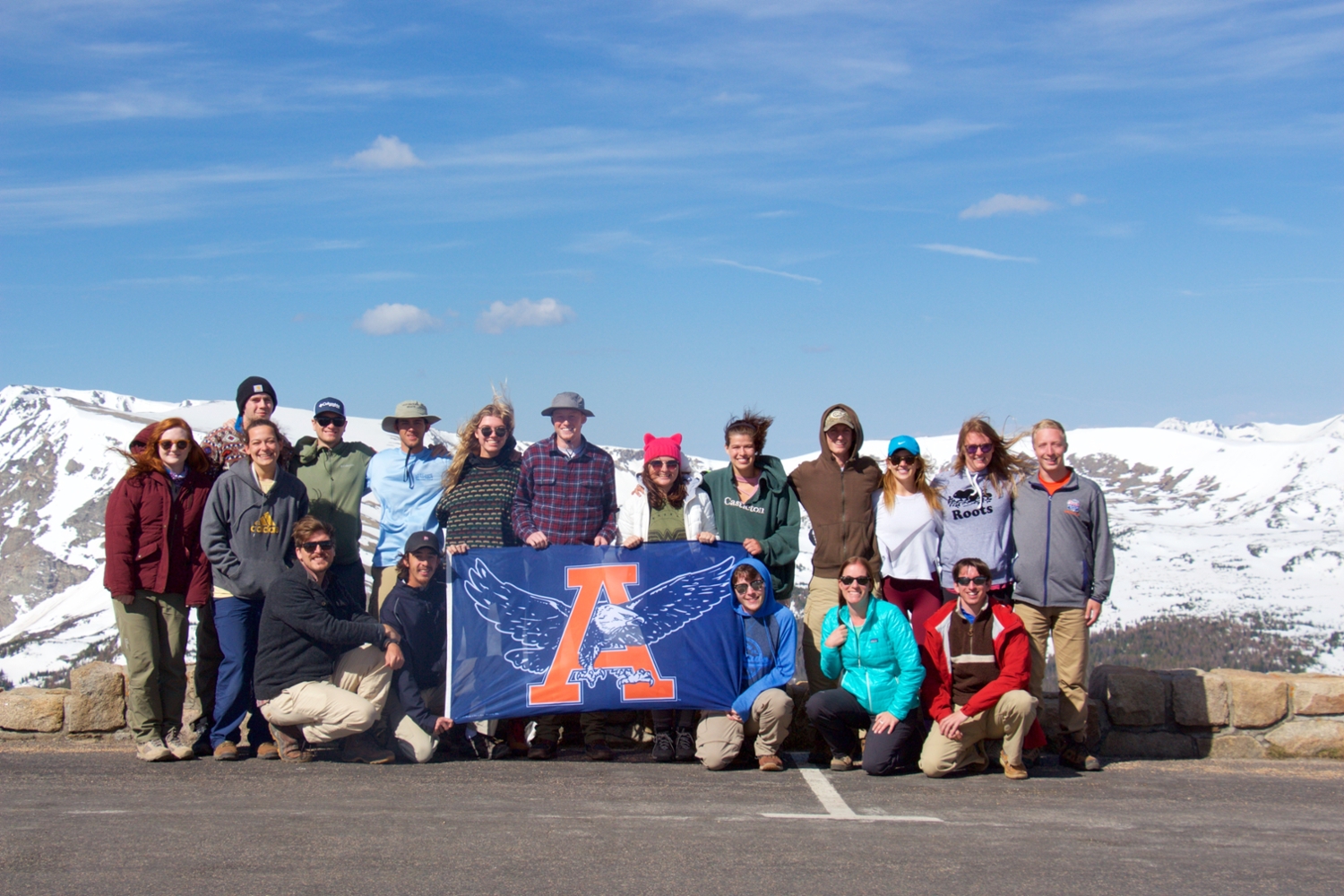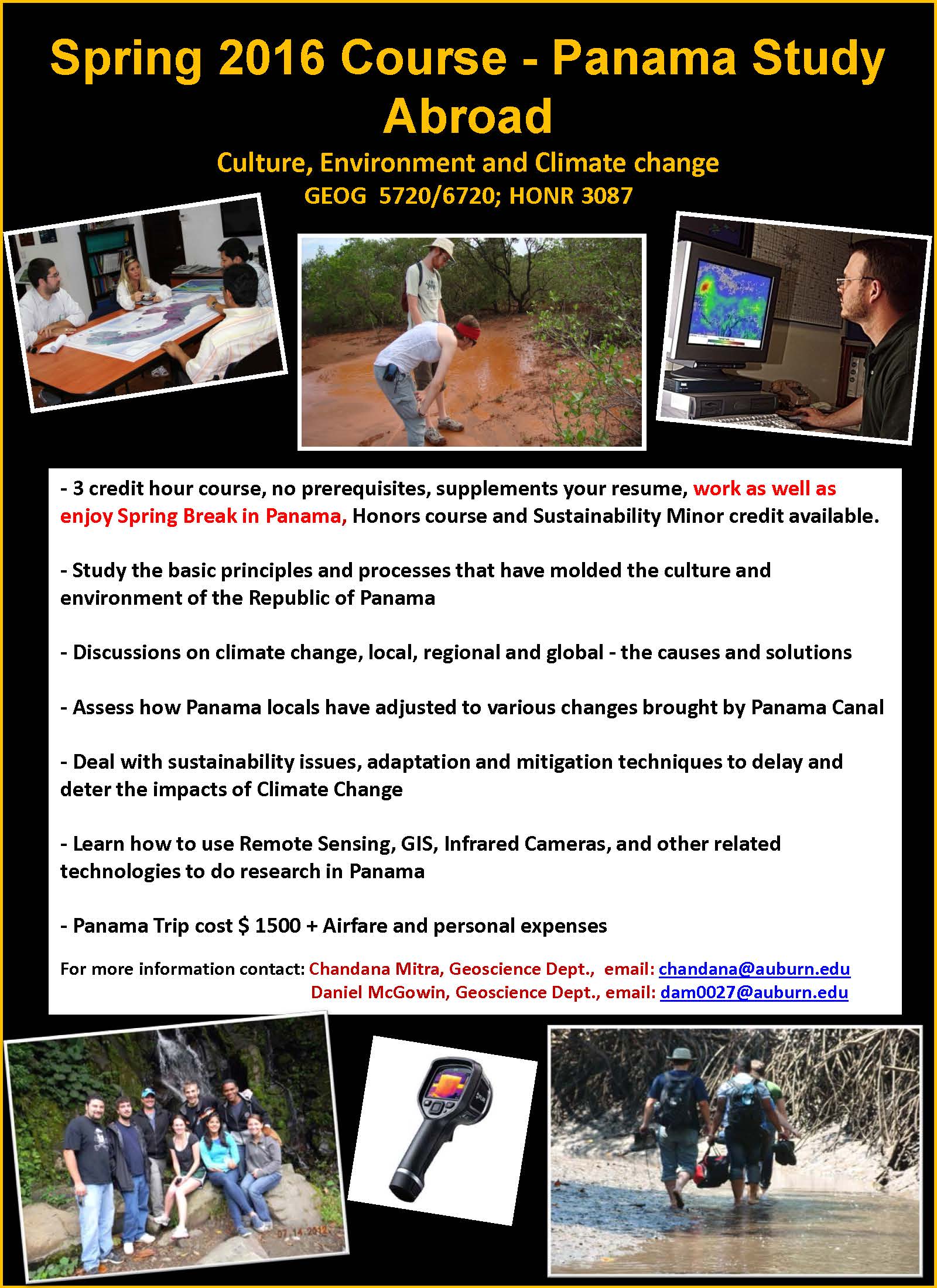Geosciences News


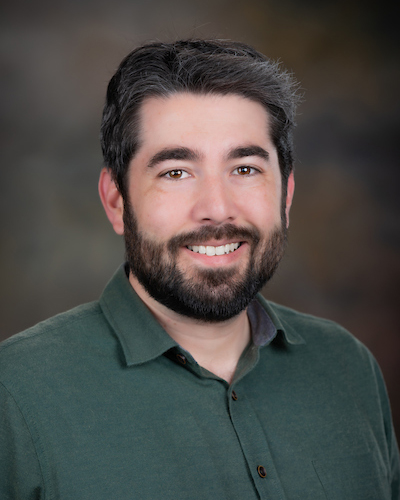
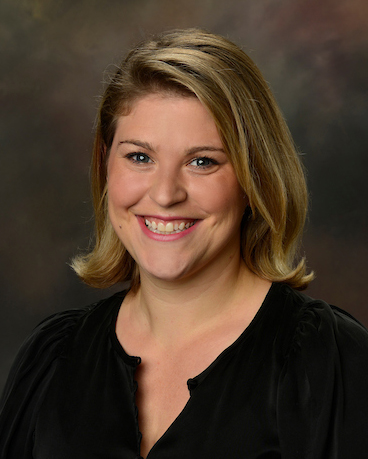
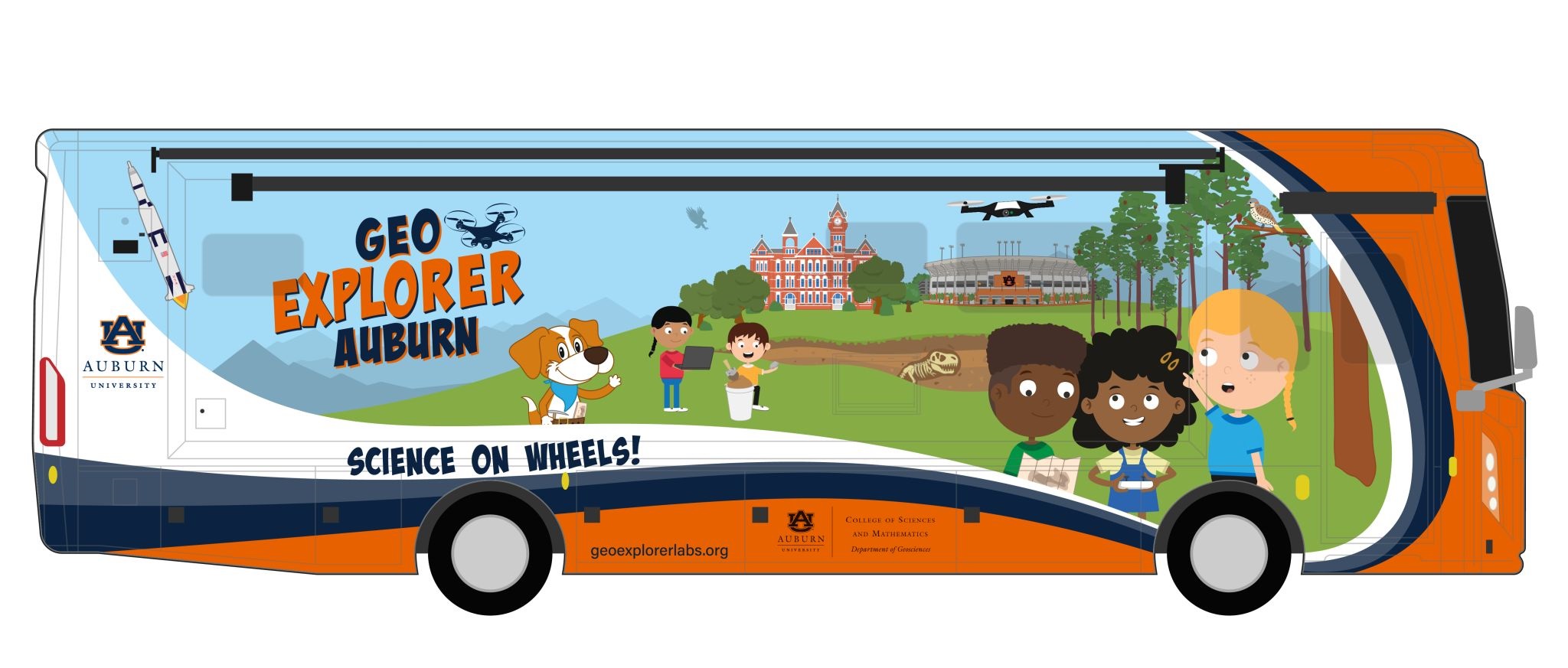
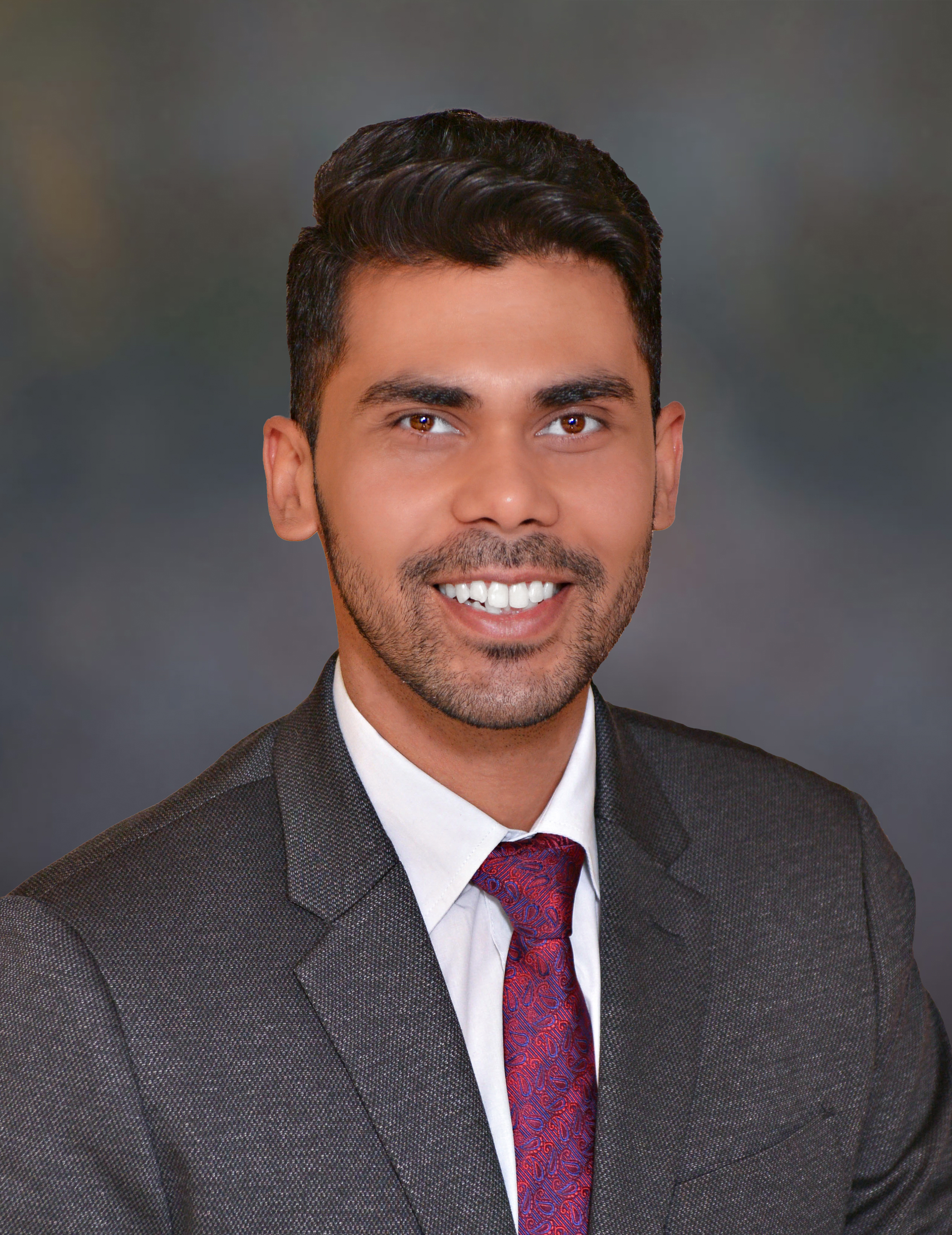
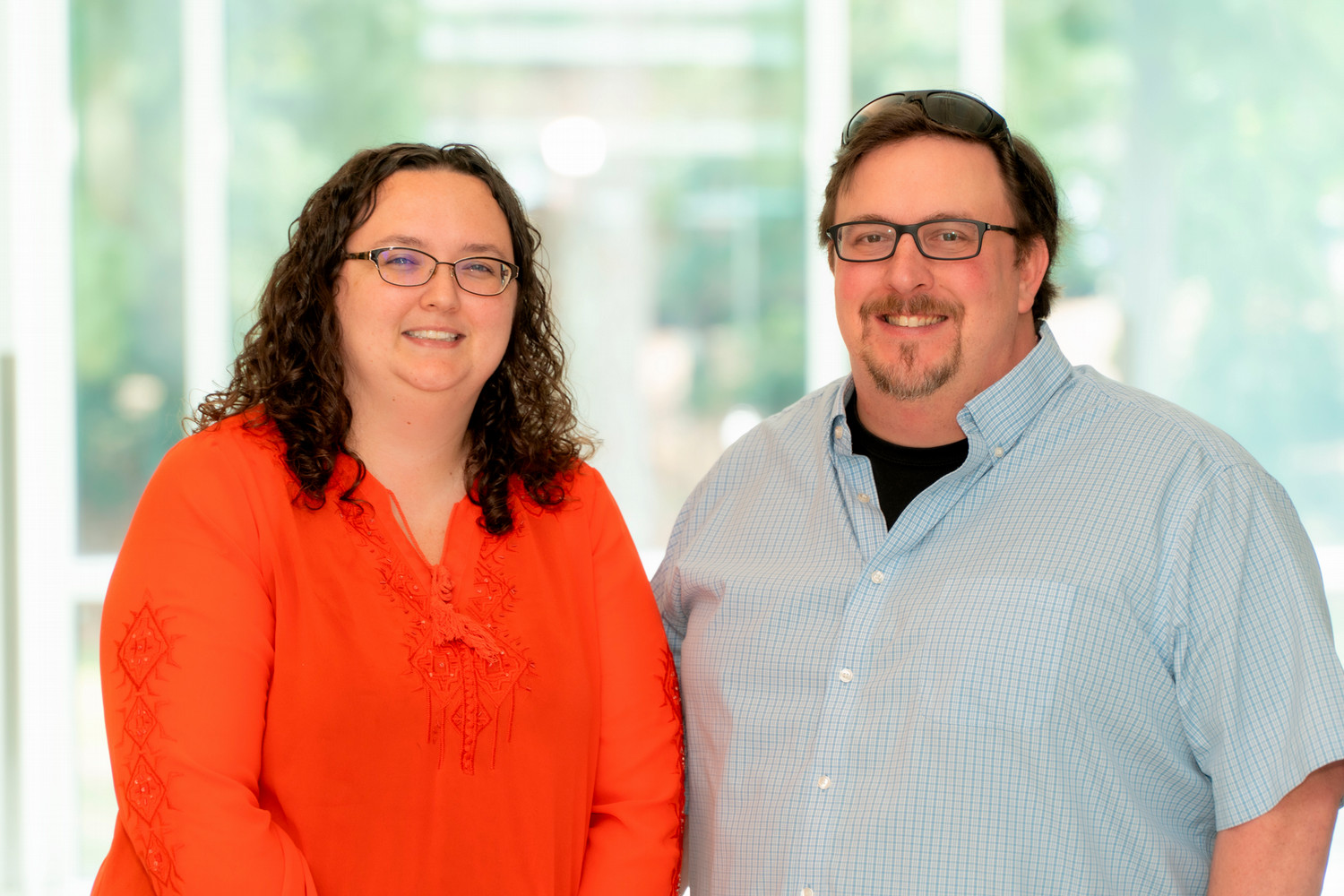
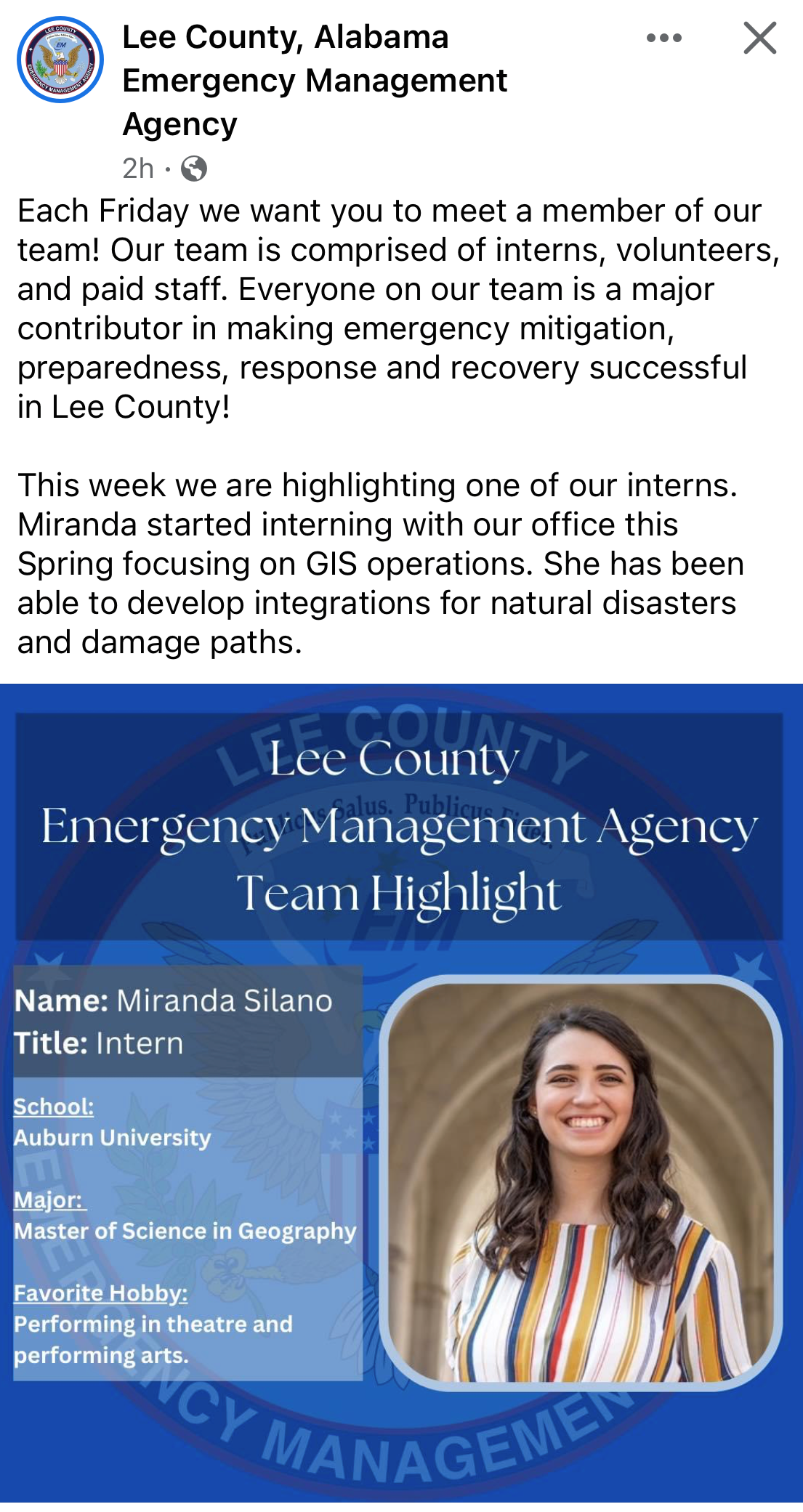
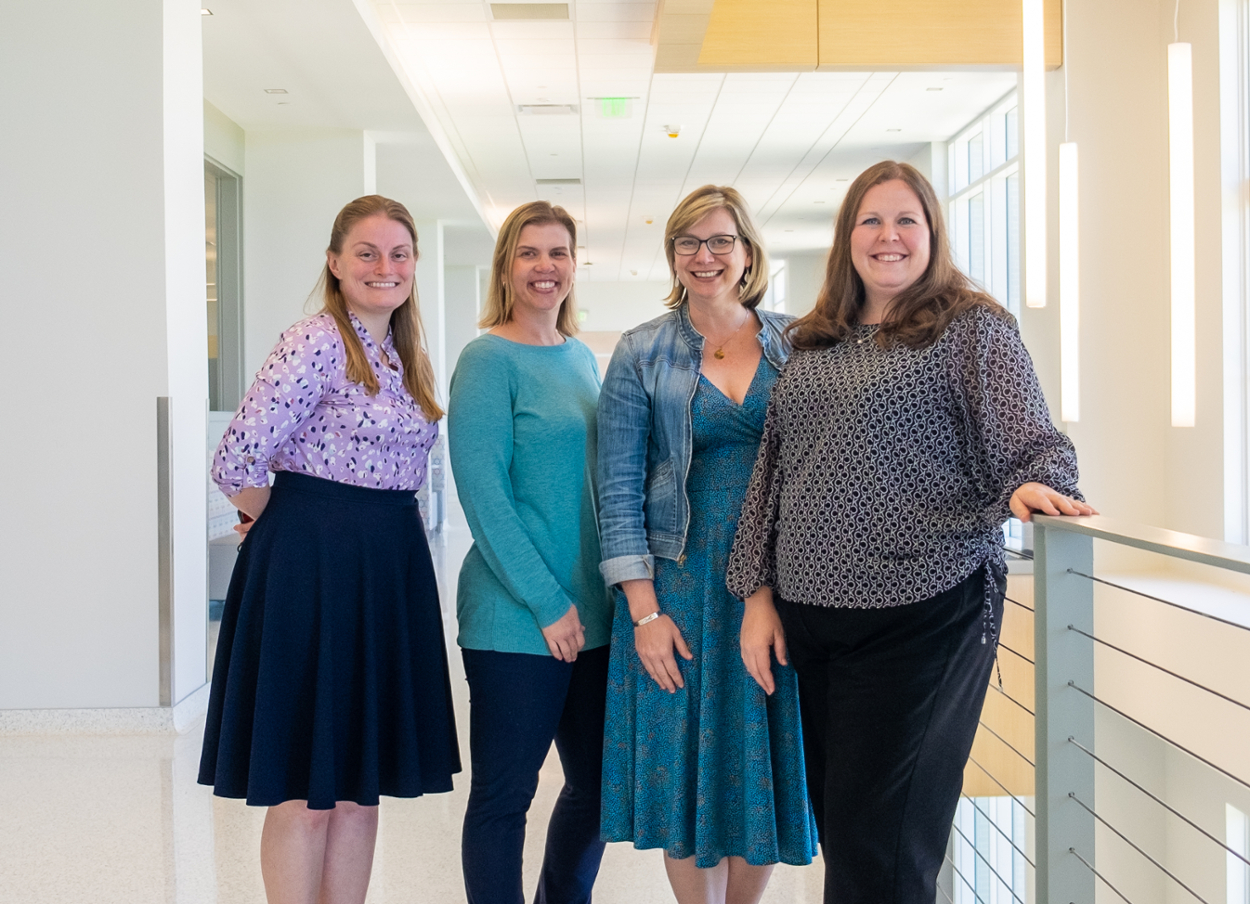
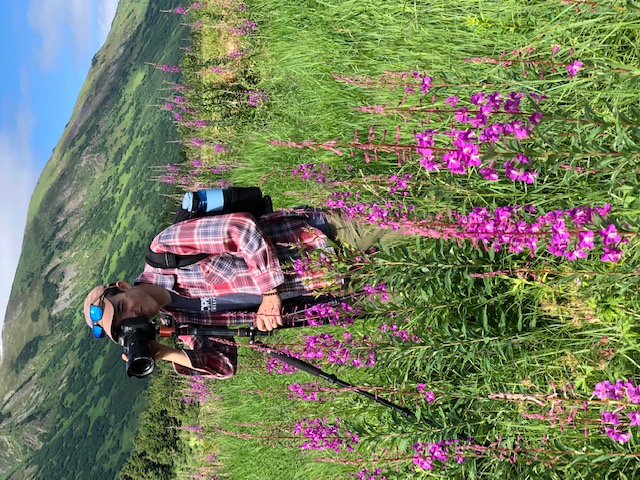
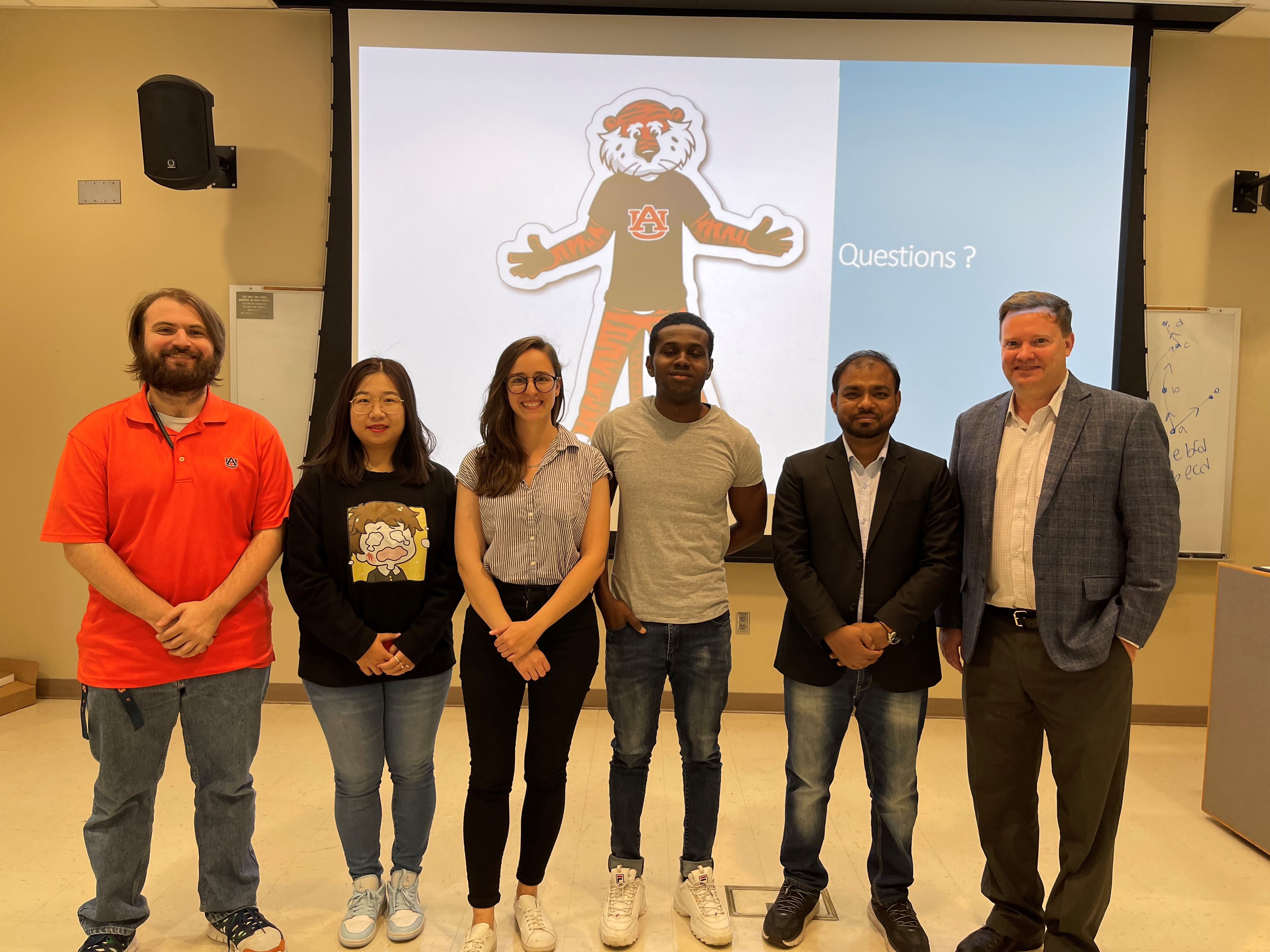
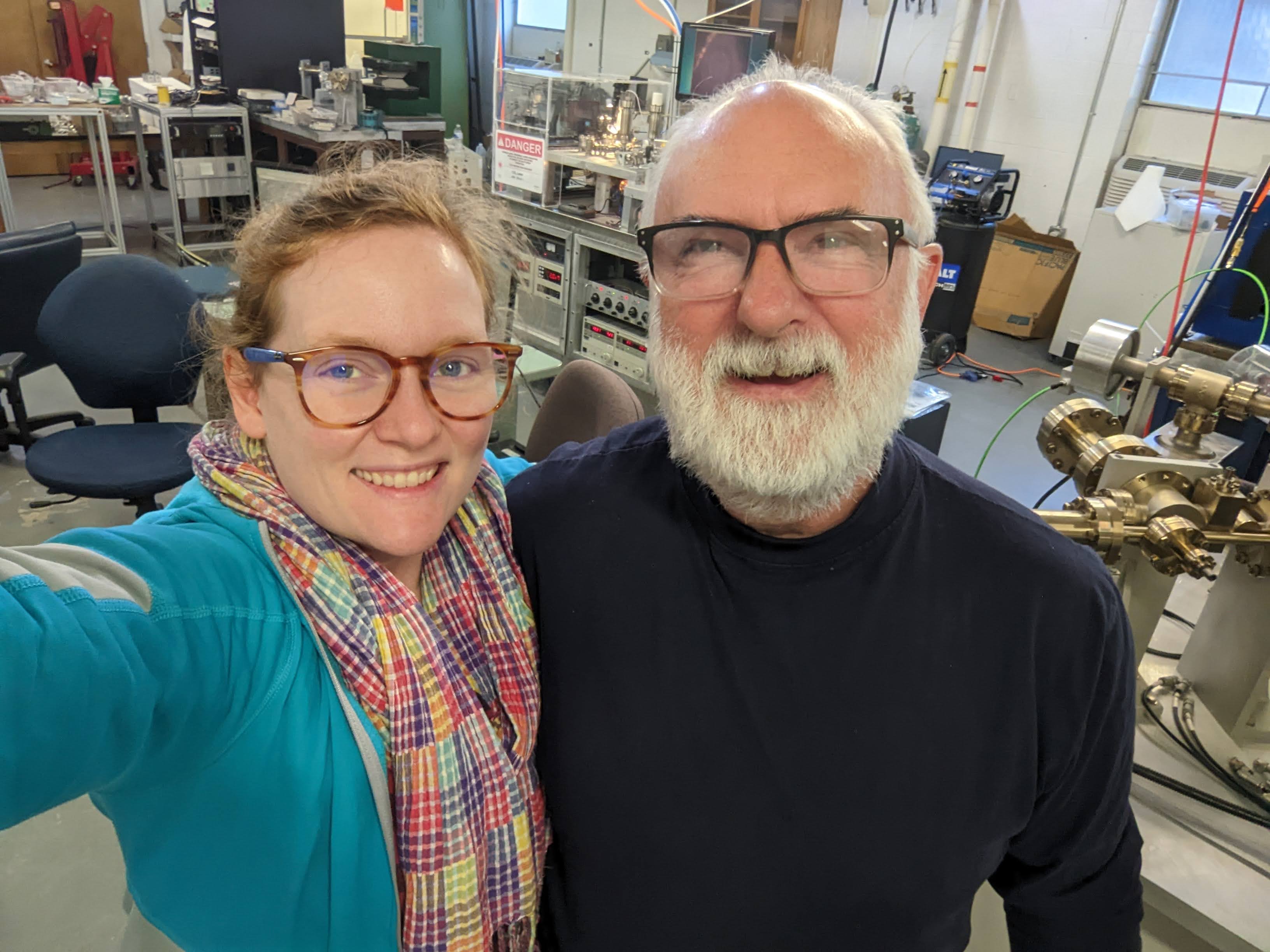
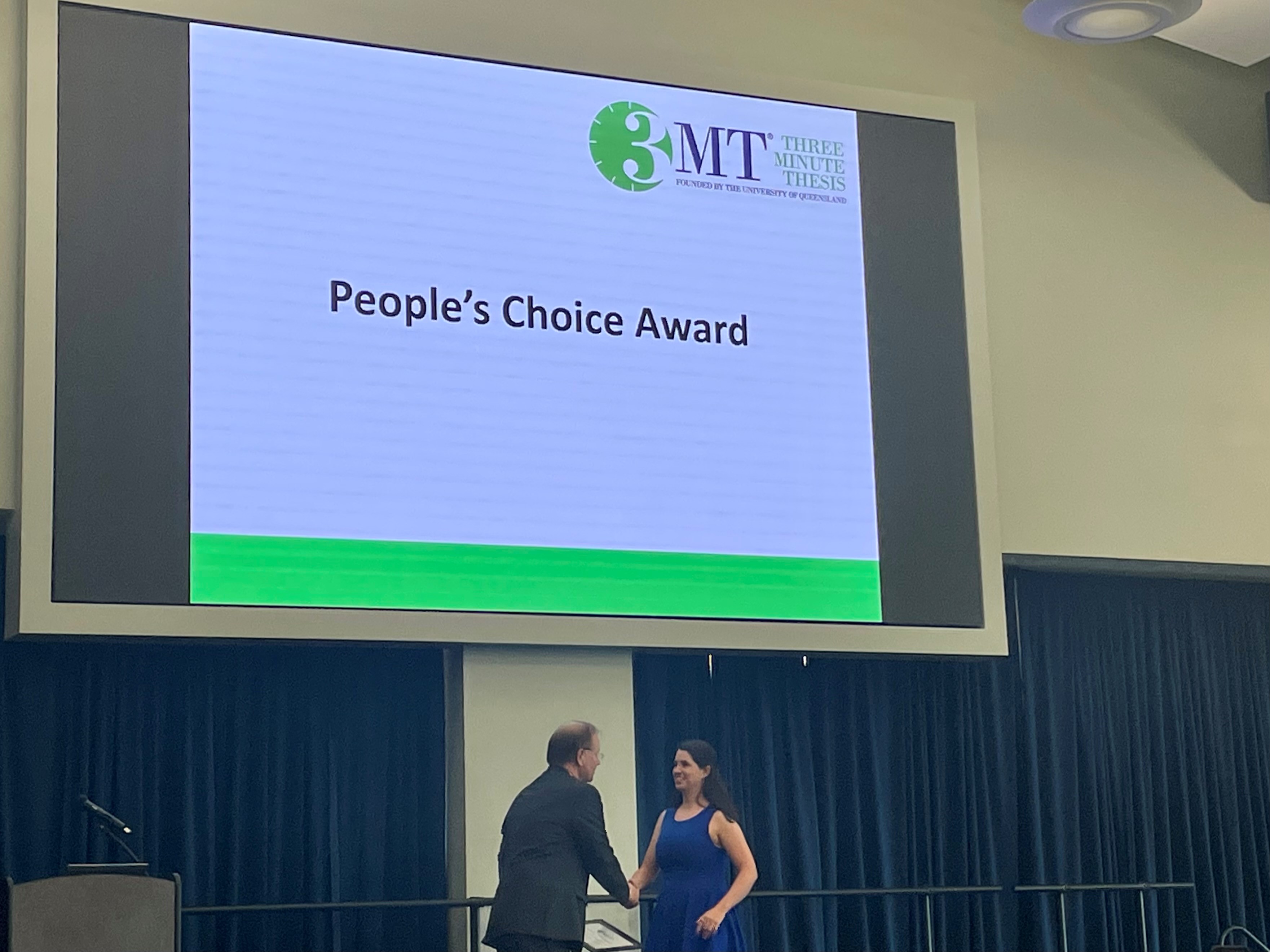
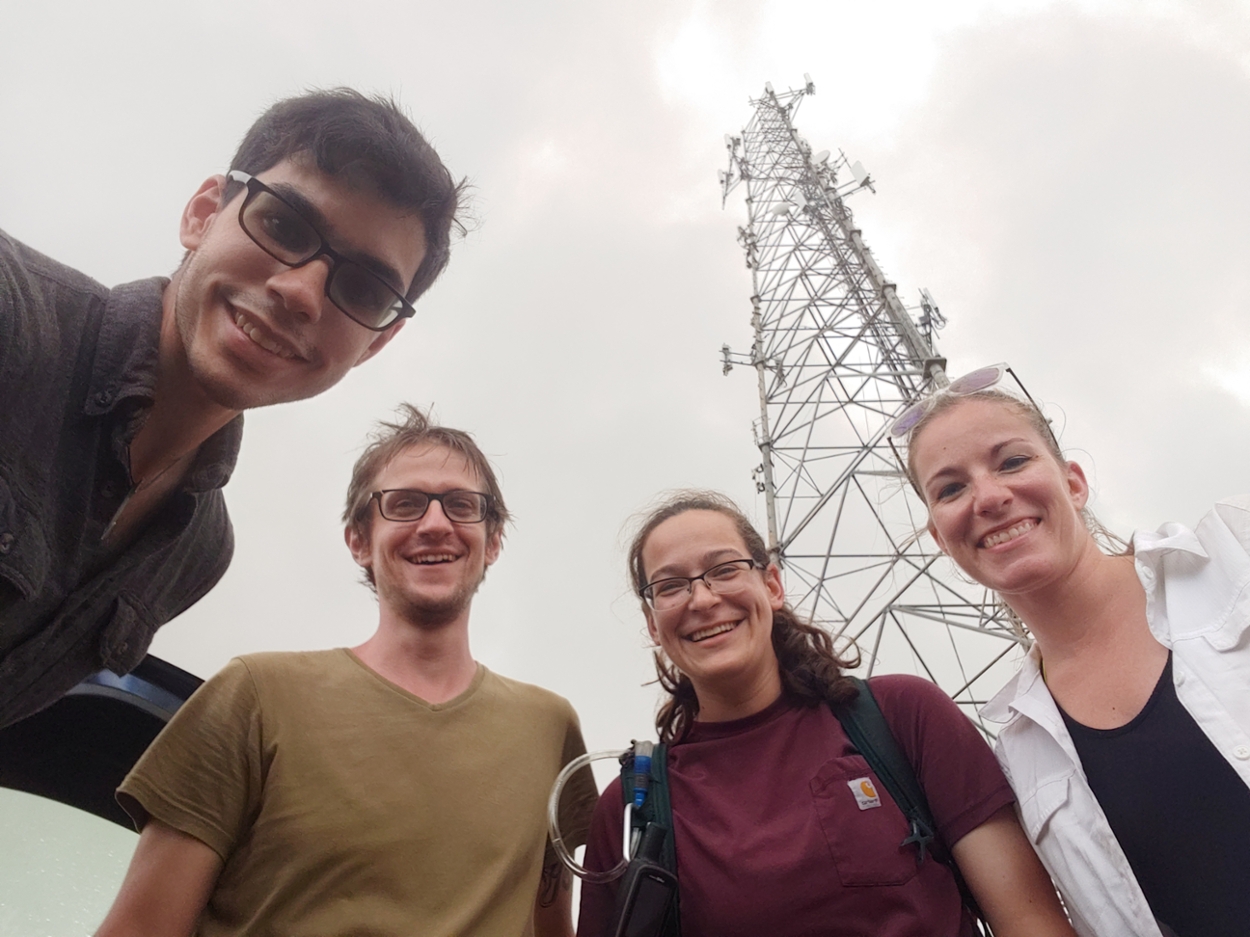
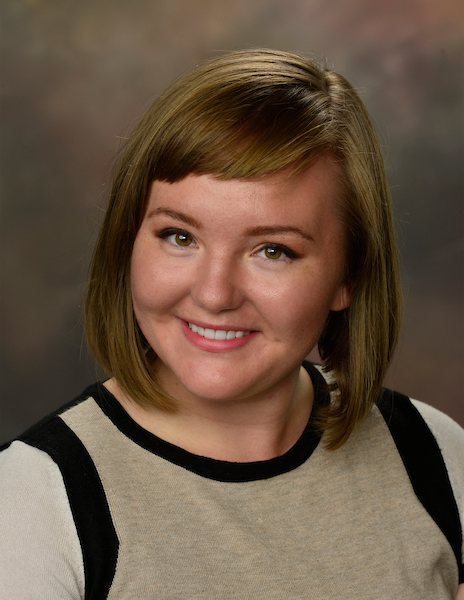
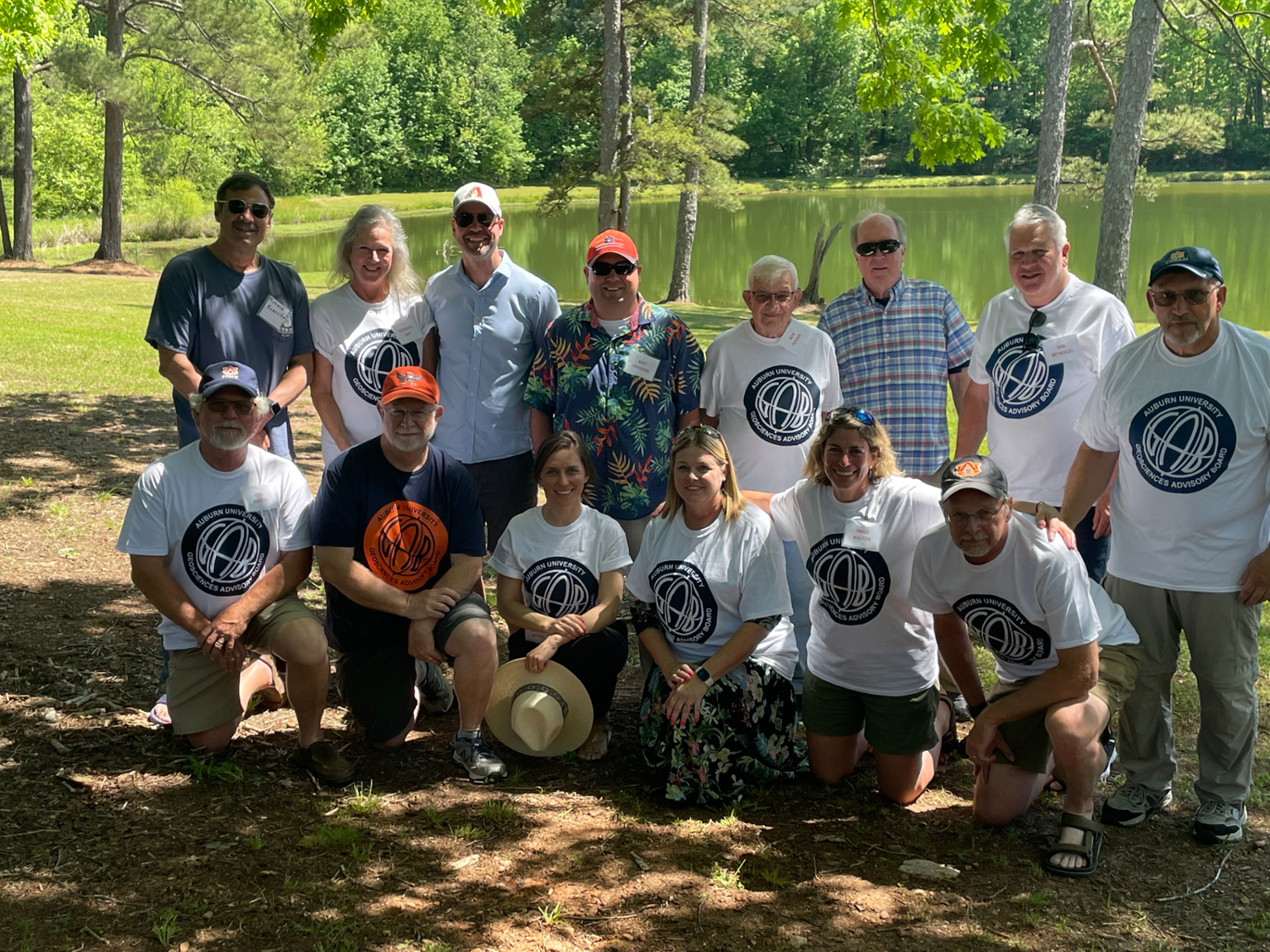
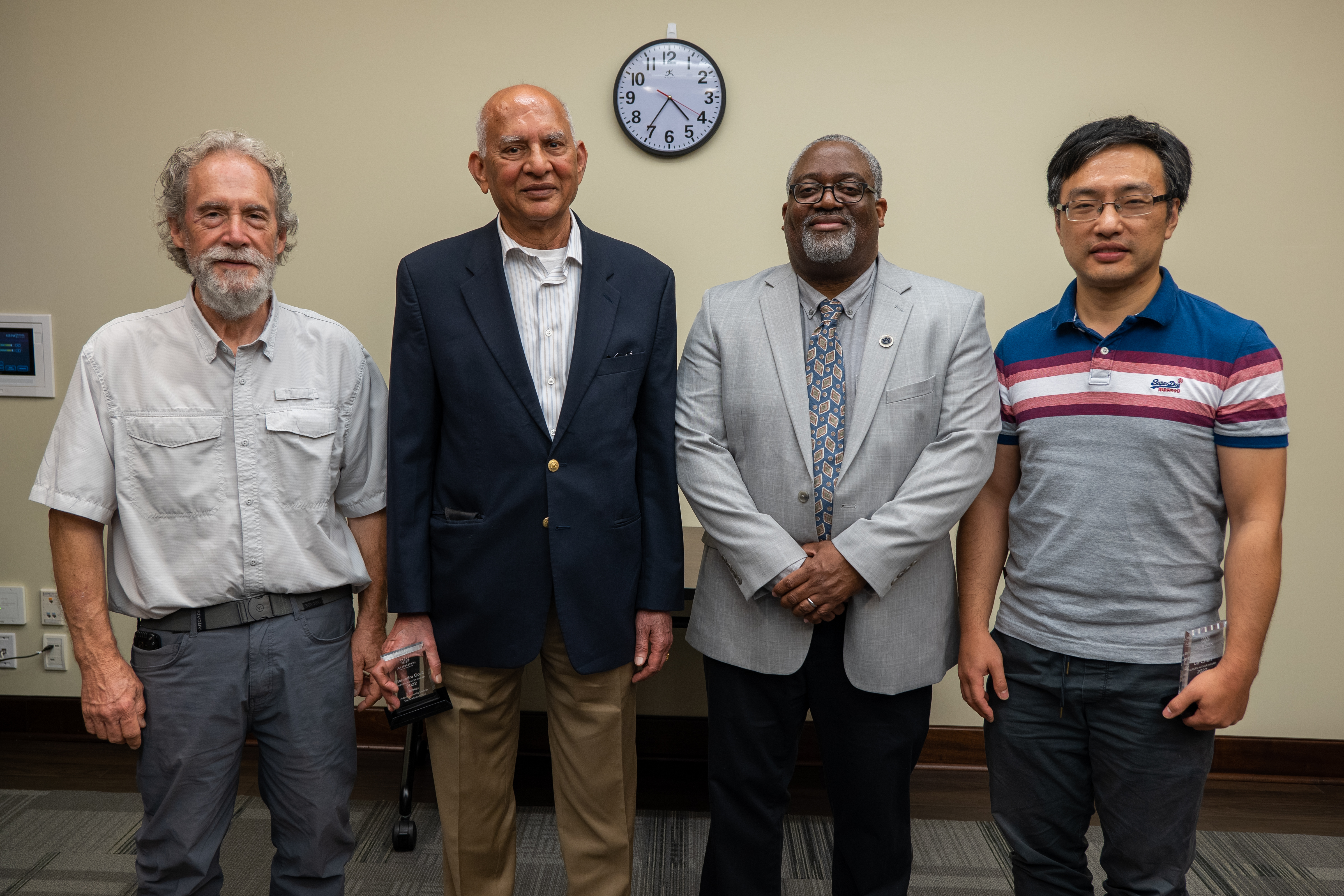
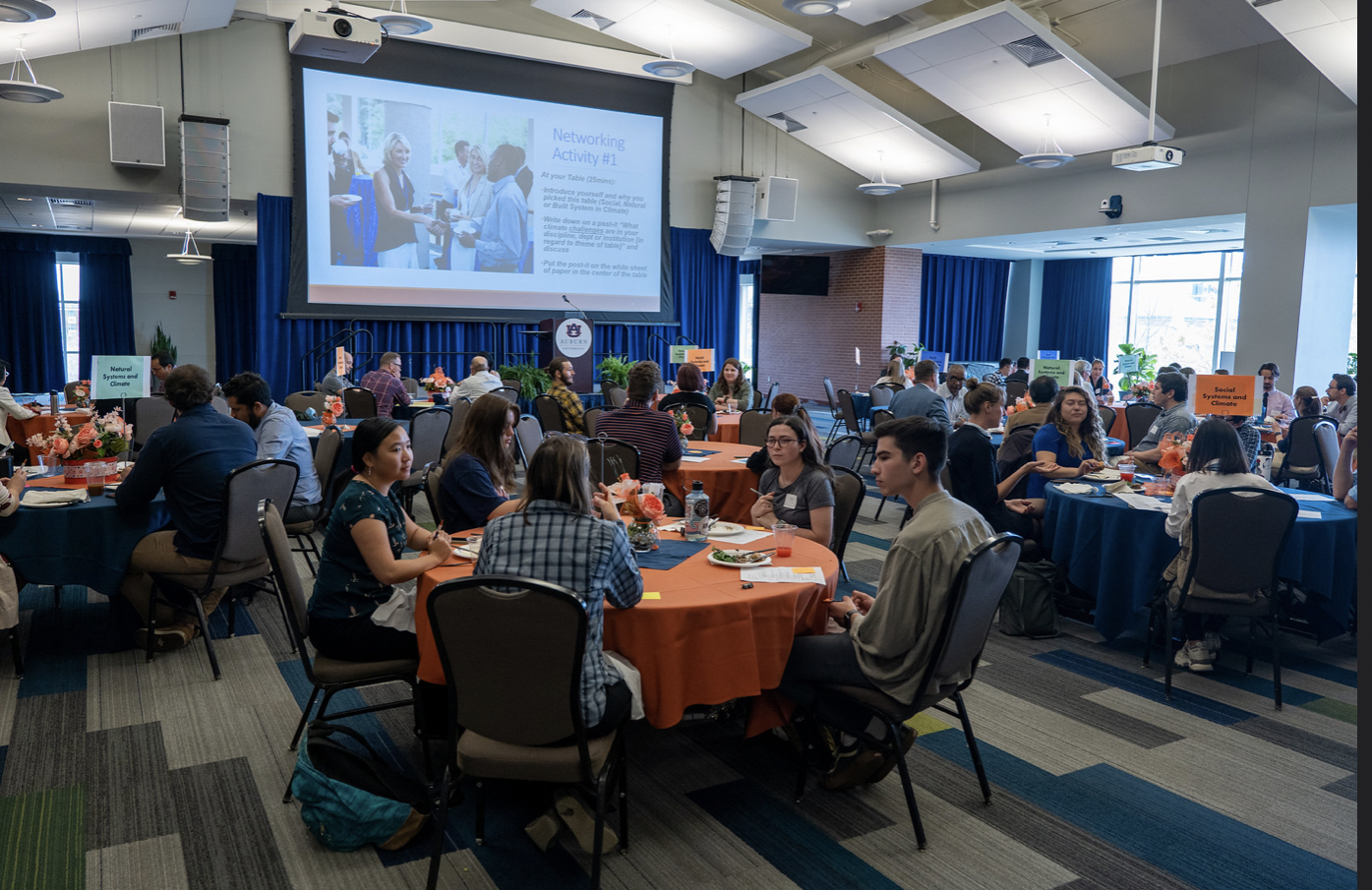

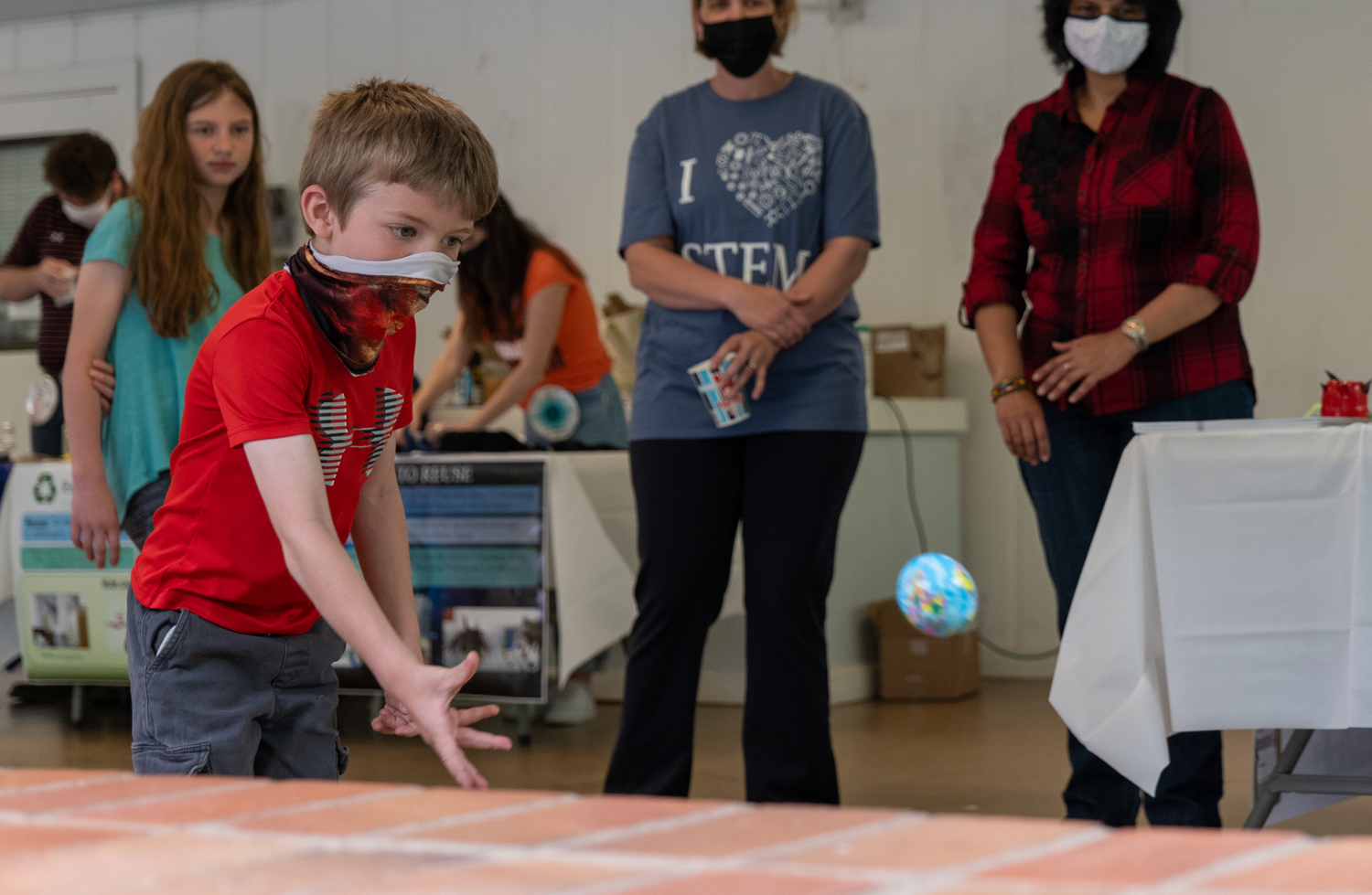

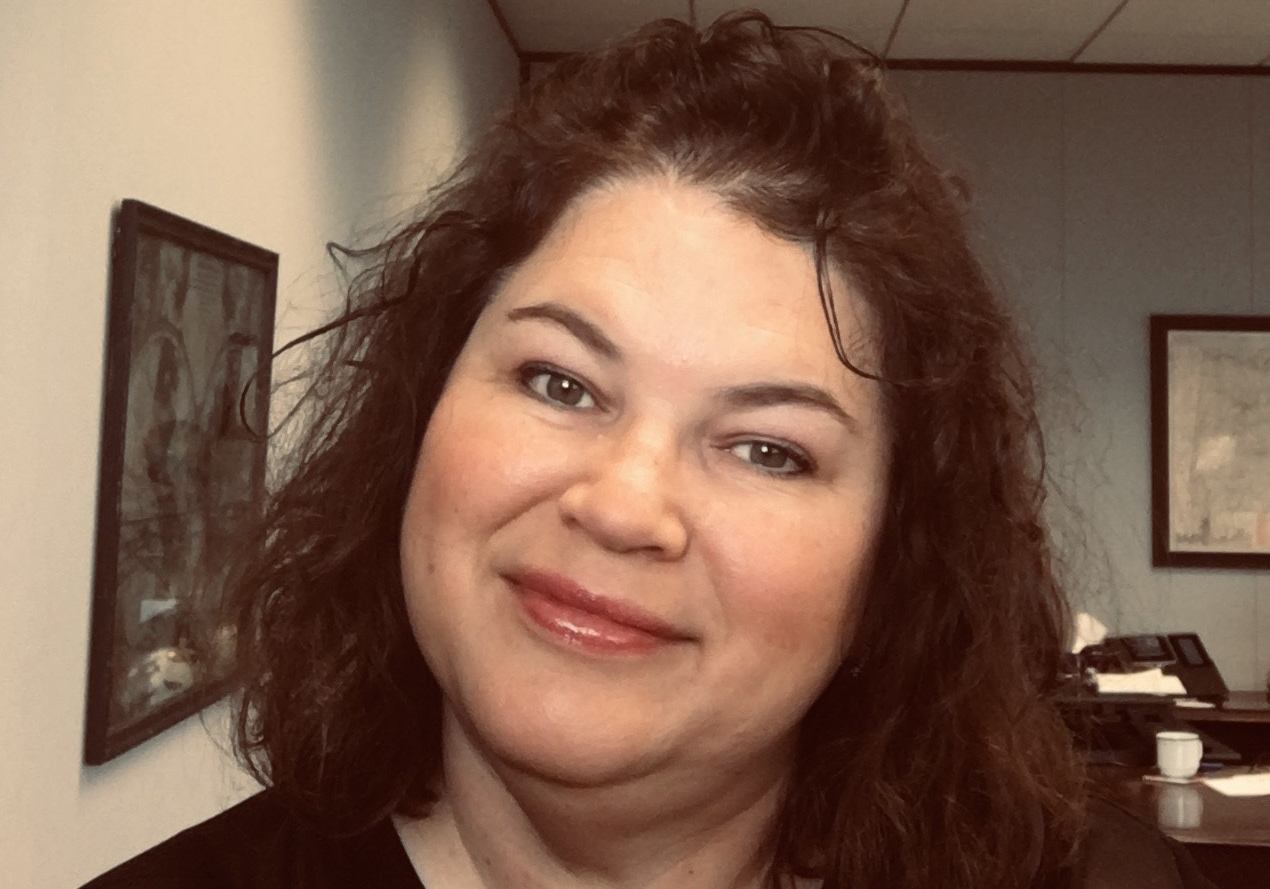
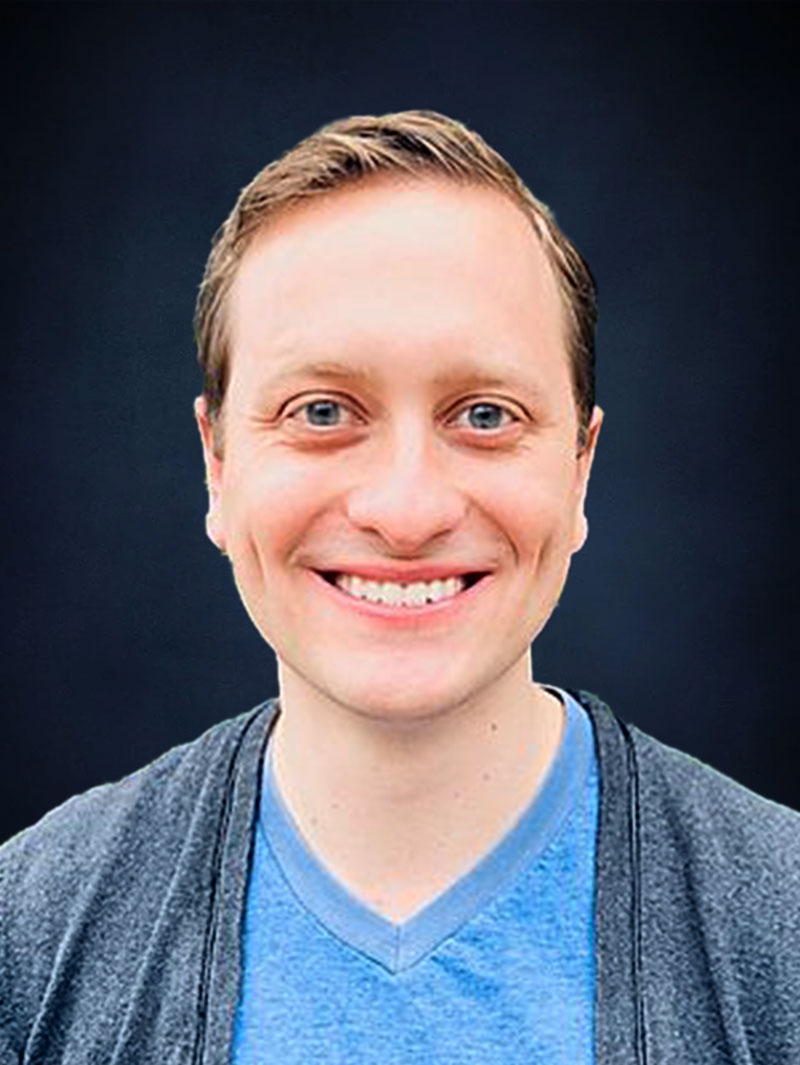
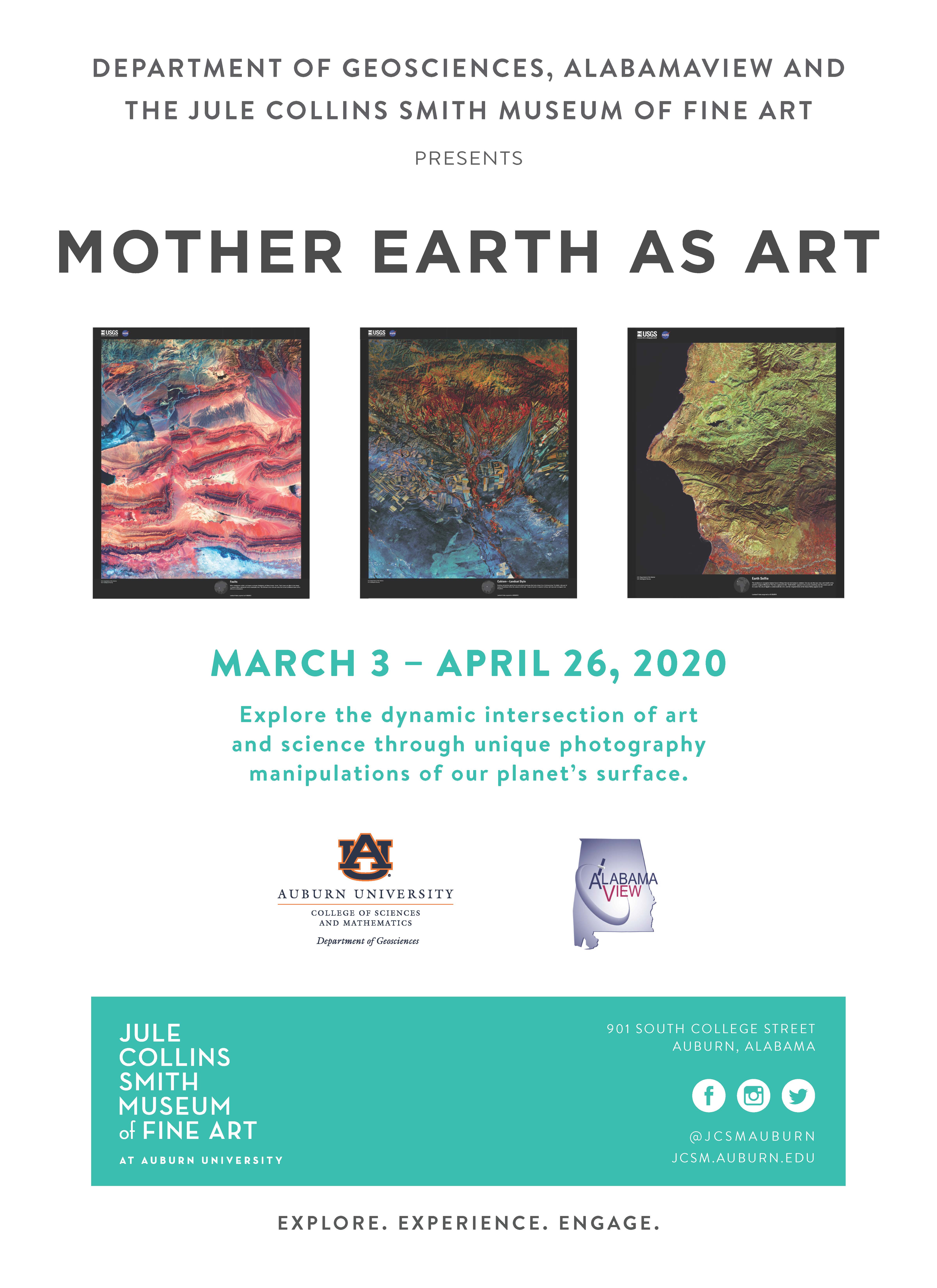
In celebration of the 50th anniversary of Earth Day, the museum is pleased to present this exhibition combining art and science through unique photographic manipulations of the Earth’s surface taken by environmental satellites operated by the USGS, USDA, DLR and Teledyne Brown Engineering and NASA.
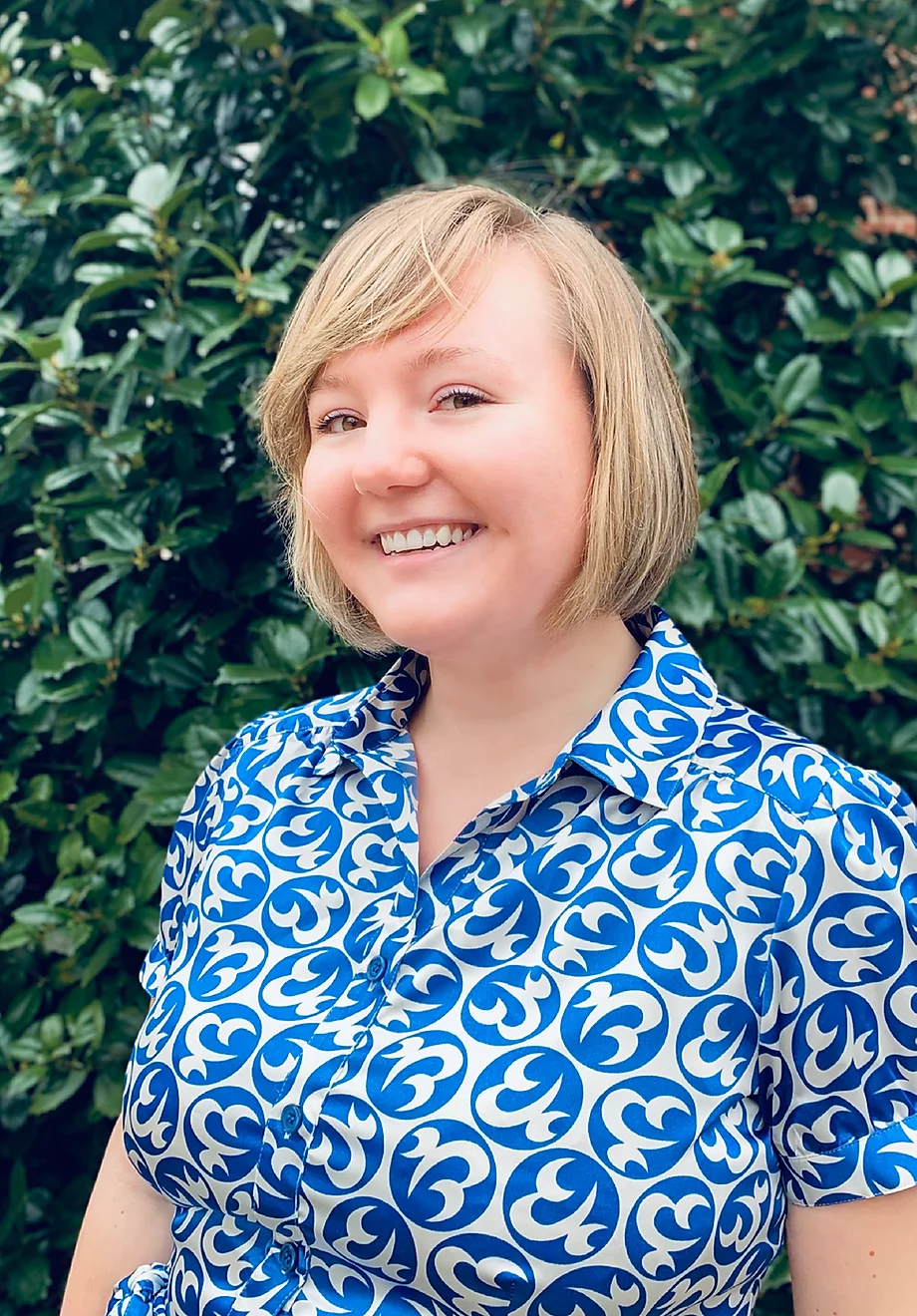
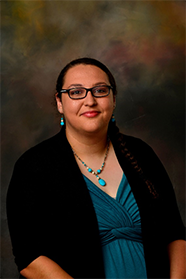
Auburn University Ph.D. Student Studies Ancient Southeastern Climates to understand the Modern Climate Change Implications for the Future
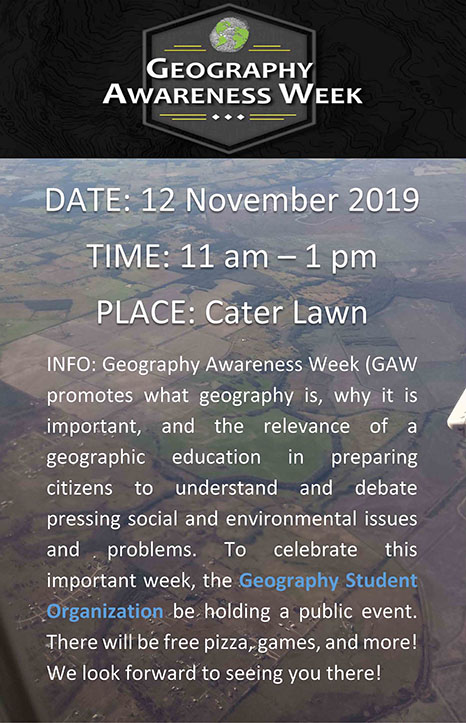
Established by a joint resolution of the U.S. Congress in 1987 and observed the third week in November every year, Geography Awareness Week (GAW) promotes what geography is, why it is important, and the relevance of a geographic education in preparing citizens to understand and debate pressing social and environmental issues and problems.
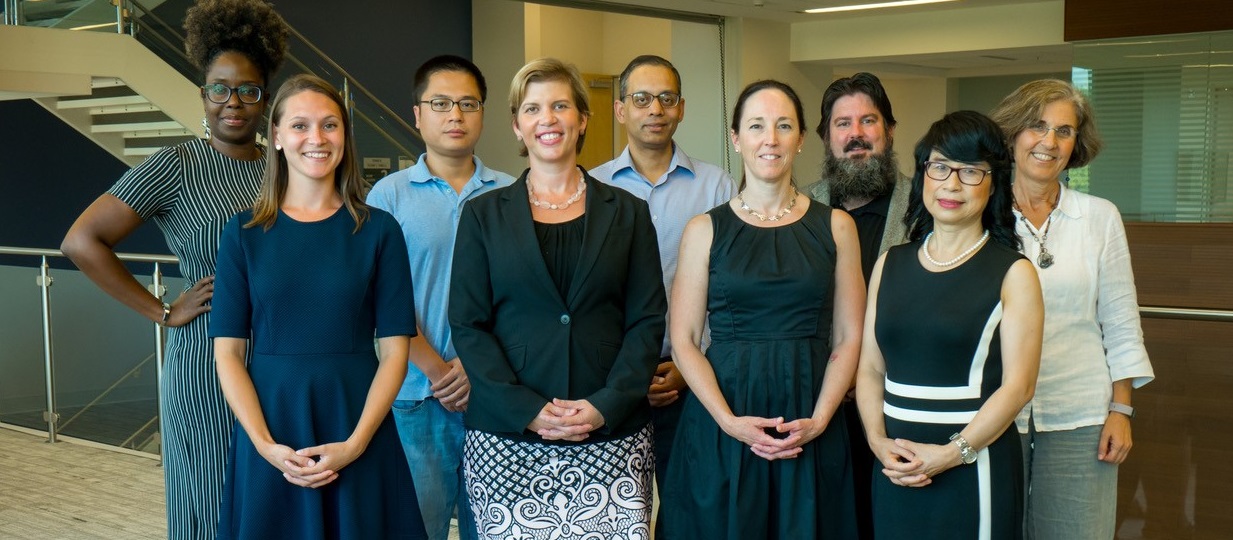
Climate change impacts the world. An interdisciplinary team of researchers from Auburn University received a highly competitive $3 million National Science Foundation Research Traineeship (NRT) grant to train the next generation of scientists and leaders to conduct cutting-edge interdisciplinary and applied research, develop effective communication skills, and prepare them for the workforce.
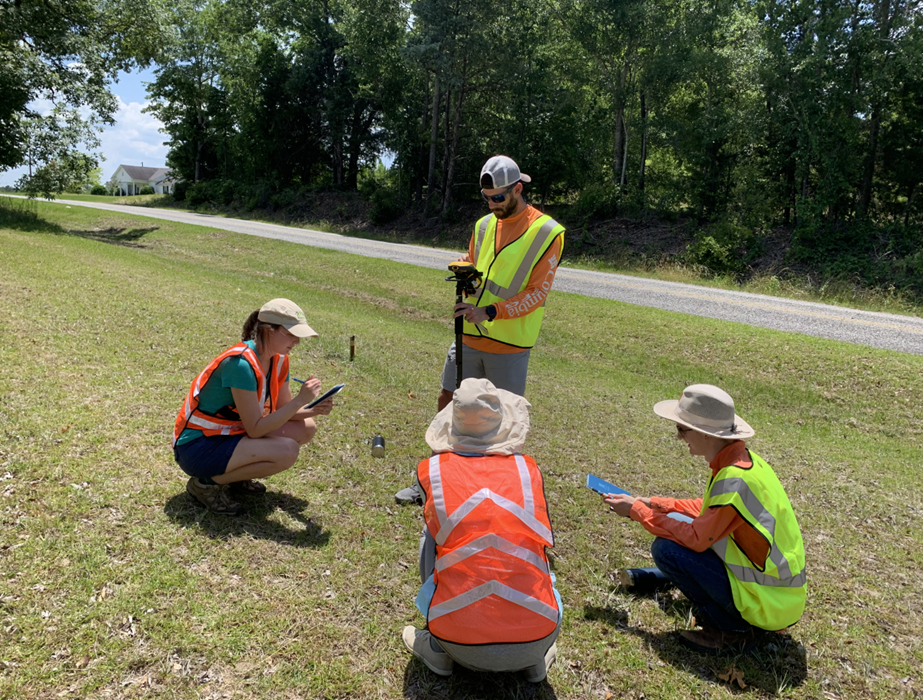
Students enrolled in a summer course entitled “Geographic Field Methods” put on by the Department of Geosciences in the College of Sciences and Mathematics (COSAM) used state-of-the-art technology to help find unmarked graves at Hopewell United Methodist Church in Opelika, Alabama.
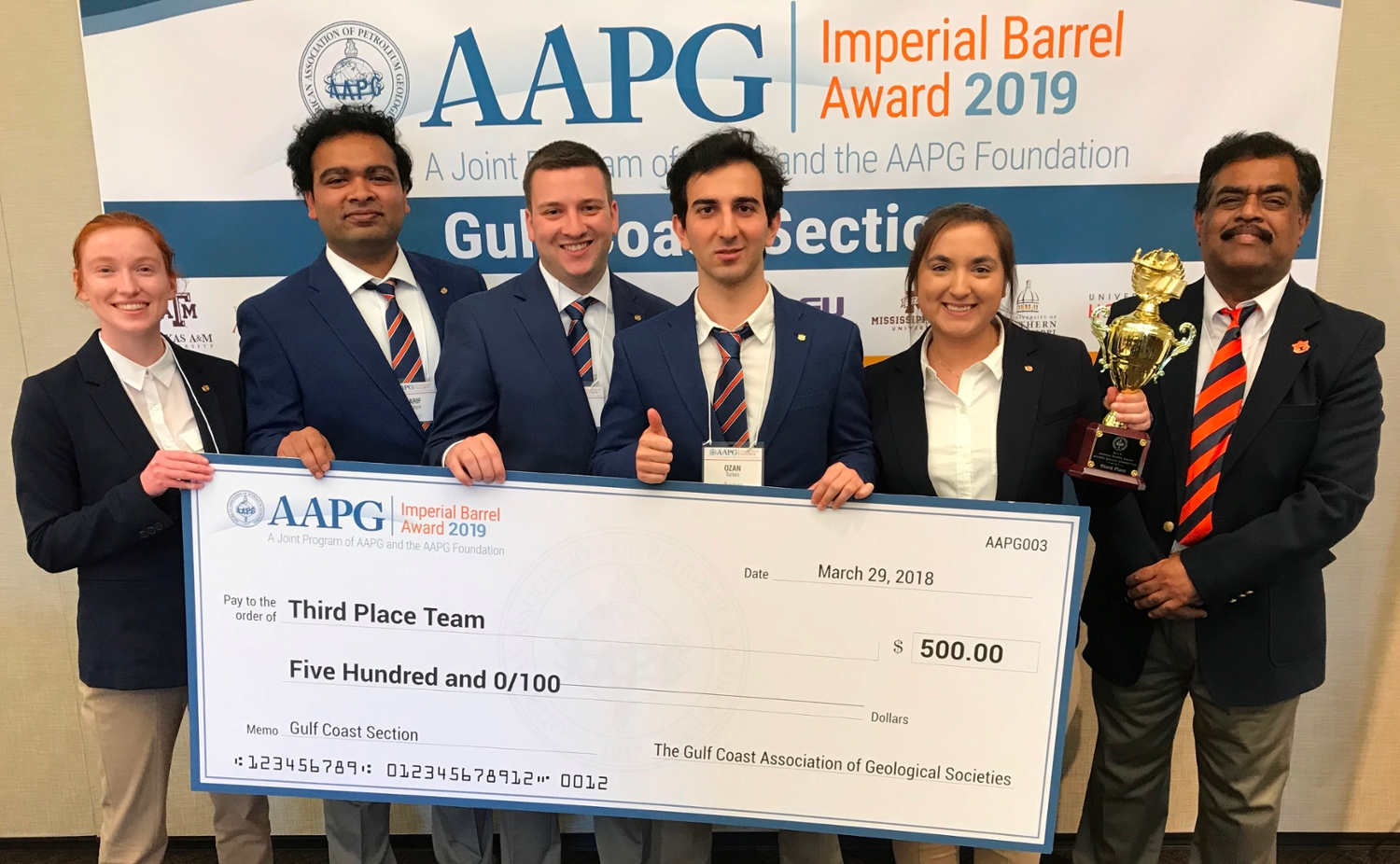
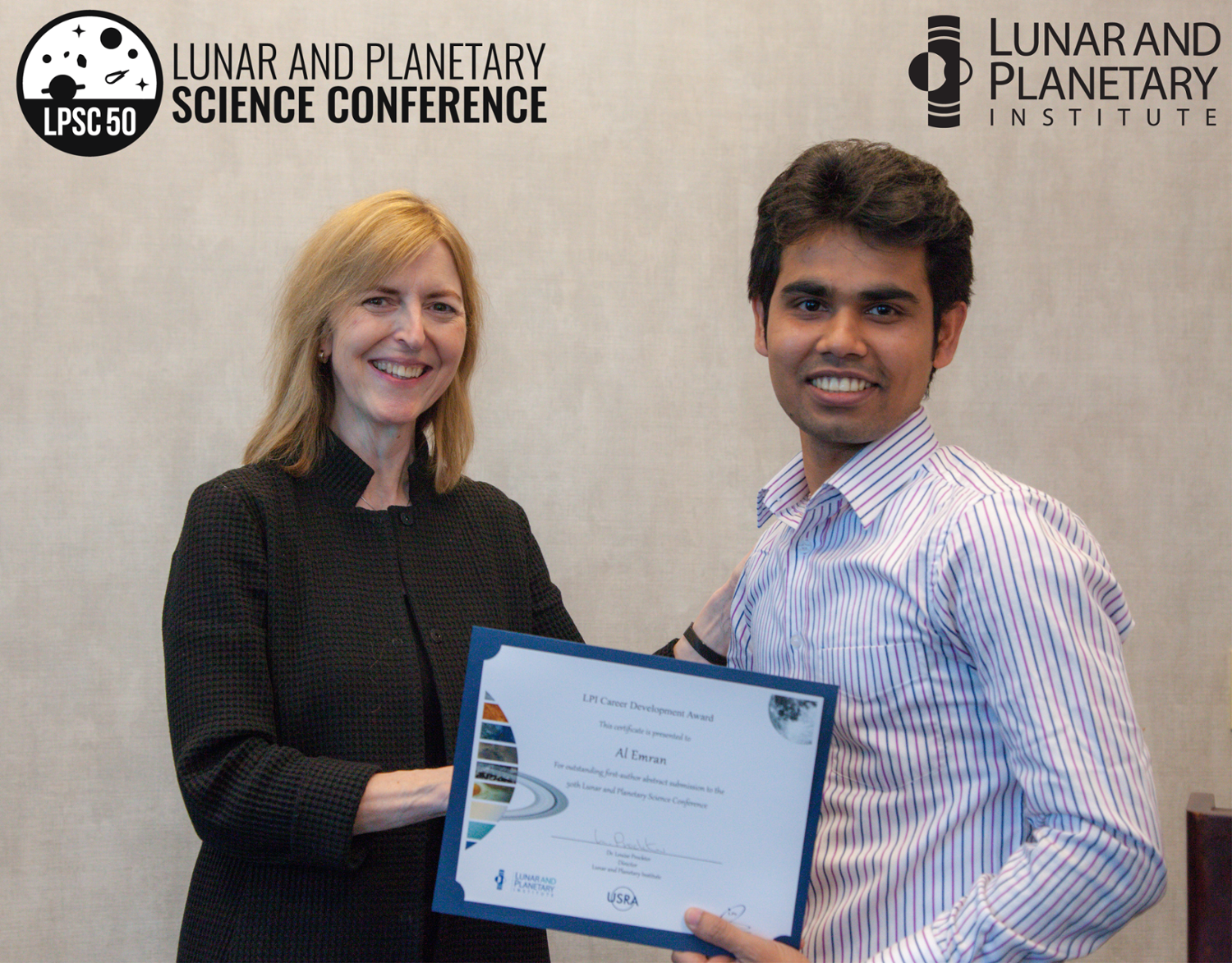
Congratulations to Al Emran from the Department of Geosciences in the College of Sciences and Mathematics (COSAM) for being selected for the 2019 Lunar and Planetary Institute (LPI) Career Development award for 2019. “That is really what this graduate student career award at a national level is all about—we’re celebrating not only the award of research excellence, but also faculty’s success in mentoring truly outstanding graduate students in their career development,” said Chair of the Department of Geosciences Dr. Ming-Kuo Lee. “The tremendous potential graduate research in the field of geosciences is very clearly reflected in Al Emran’s award showcased here.” This award is given to graduate students who submitted a first-author abstract for presentation at the 50th Lunar and Planetary Science Conference. “Automated object-based identification of dunes at Hargraves crater, Mars” is the title of his abstract that was chosen from 96 application from 15 countries. “Being selected for the LPI award is always a prestigious recognition to graduate students in lunar and planetary sciences field and I am tremendously thrilled to receive this recognition, said Al Emran. “As the first Auburn student to win this award, I am honored to be recognized for the work I am doing in the field of lunar and planetary sciences.” His research on characterizing the environmental history of Mars using orbital spacecraft data under the supervision of Dr. Luke Marzen, professor of geosciences, and Dr. David King, professor and director of concepts of science.

Auburn University senior Sophie Milich began her Auburn career as a General Science Education student, but soon rediscovered her love for rocks. “I was in Anatomy class and was also taking a Geology course at the time,” Sophie said. “[John] Hawkins’ Geology class made me realize that I wanted to study Geology.” Sophie, who is originally from Houston, Texas, was offered soccer scholarships to several schools and said she chose Auburn because she loved the people. She has loved playing soccer since she was four- years old and currently plays for Auburn’s soccer team as a back-up goalkeeper. She said it was a transition not playing a starting position. “I understood my role when I started,” she said. “I have loved supporting the team because we made it to the Elite 8 and Sweet 16 while I’ve been here. It was a great team and it was fun having all of those friends. It’s like its own sorority. You come in and you have those friends that are always there for you.” Sophie hopes to one day work in the oil industry and will soon begin graduate school at the University of Texas at San Antonio, where she will also play soccer and will soon be planning a wedding. Sophie’s fiancé, David, recently proposed on the Mercer University football field during Senior Night. “The engagement was locally famous and was on Snapchat and everything,” she said “I was gasping for air.” Sophie is learning more about the oil industry while working with graduate students to help them compete for the Imperial Barrel Award, an annual prospective basin evaluation competition during which teams compete to win scholarship funds for their geoscience department. “That has been great with helping me learn more about the oil field,” she said. Sophie said that she has enjoyed her time studying Geology through the Auburn University College of Sciences and Mathematics being surrounded by others that love science as much as she does. “I’ve always liked science,” she said. “I’ve also always loved rocks. I remember when I was little shoving my pockets full of rocks. Seeing all of the people in COSAM that love science makes you also love science even more because you see their passion.”
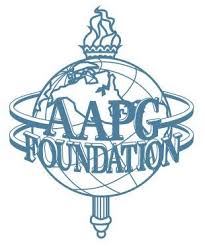
Three students from the Department of Geosciences in the College of Sciences and Mathematics (COSAM) have received highly competitive grants from the American Association of Petroleum Geologists (AAPG) Foundation Grants-in-Aid Program. “Students use these grants to help them gain important geological field and analytical experience,” explained Ashraf Uddin, professor of geosciences. “I am proud of these three successful Auburn University students who won AAPG Grants-in-Aid In 2019. Two of the students received the maximum grant of $3,000 and the other student received $2,000.” The students are: • Md. Sharif Mustaque, Merrill W. Haas Memorial Grant • Jasmin Naher, SEAPEX (Southeast Asia Petroleum Exploration Society) Grant • Jacob Thompson, Grants-in-Aid General Fund The American Association of Petroleum Geologists is the world's largest professional organization of petroleum geoscientists. Their Grants-in-Aid Program helps graduate students to research petroleum, energy-mineral resources or related environmental geology issues.
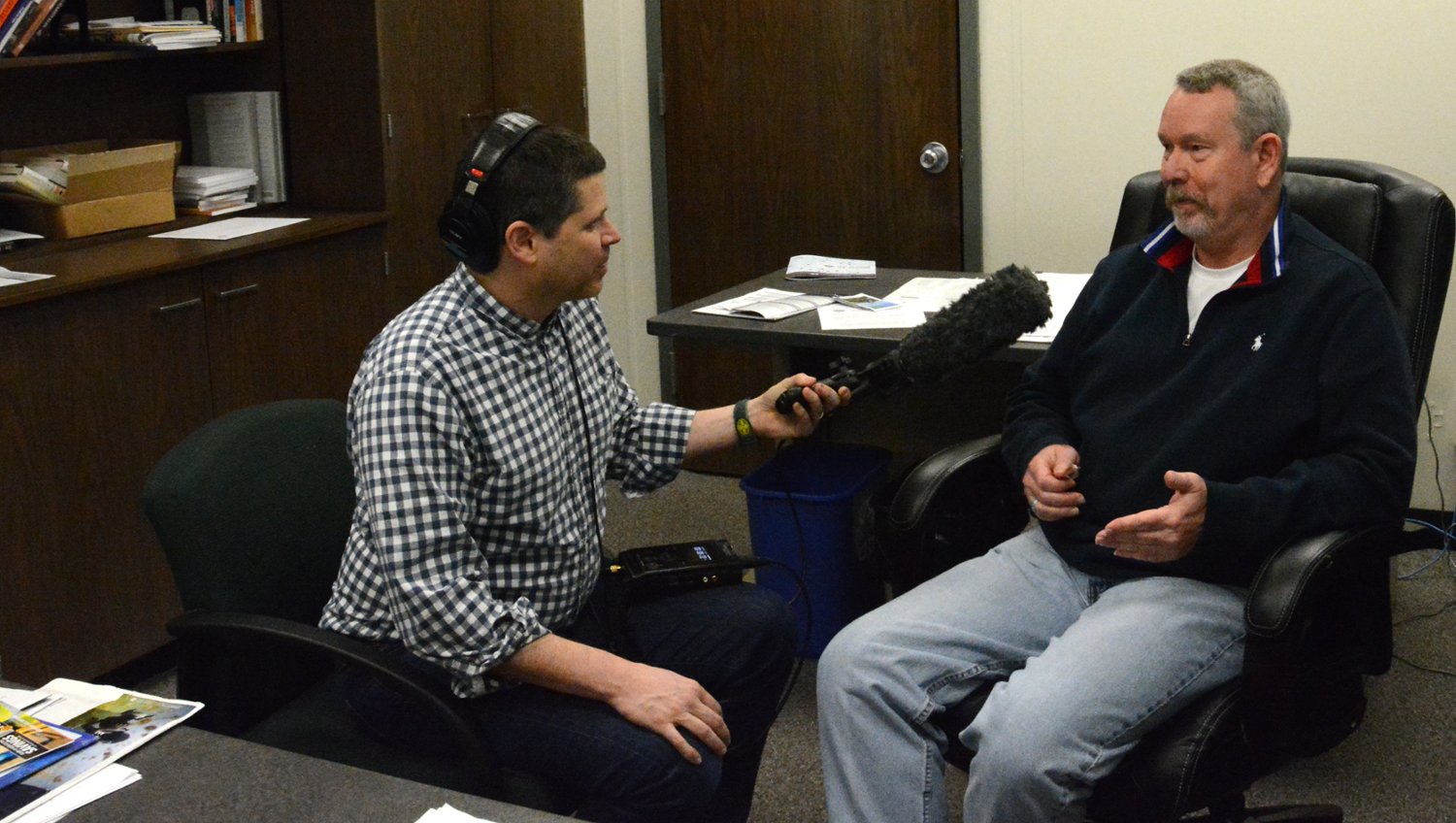
Dr. Philip Chaney is an associate professor of Geography at Auburn University. For 21 years he has taught students about natural disasters and directly worked on research projects for Lee County Emergency Management Agency. Dr. Chaney worked with victims of previous tornadoes to understand their preparedness and how they responded during the storm. Recently, he researched potential sites for community tornado shelters including in the Smiths Station area where a tornado just devastated the local community. He was interviewed on March 4, 2019, by Russell Lewis, the Southern Bureau Chief for National Public Radio (NPR), for a story appearing in Morning Edition on March 5. Dr. Chaney spoke about the importance of being aware of tornado warnings and understanding the time needed to respond. “You need to identify a safe place and practice the plan before a tornado warning is ever given,” shared Dr. Chaney. “It is critical that people know how much time they need to get to safety before they are in an emergency situation.”
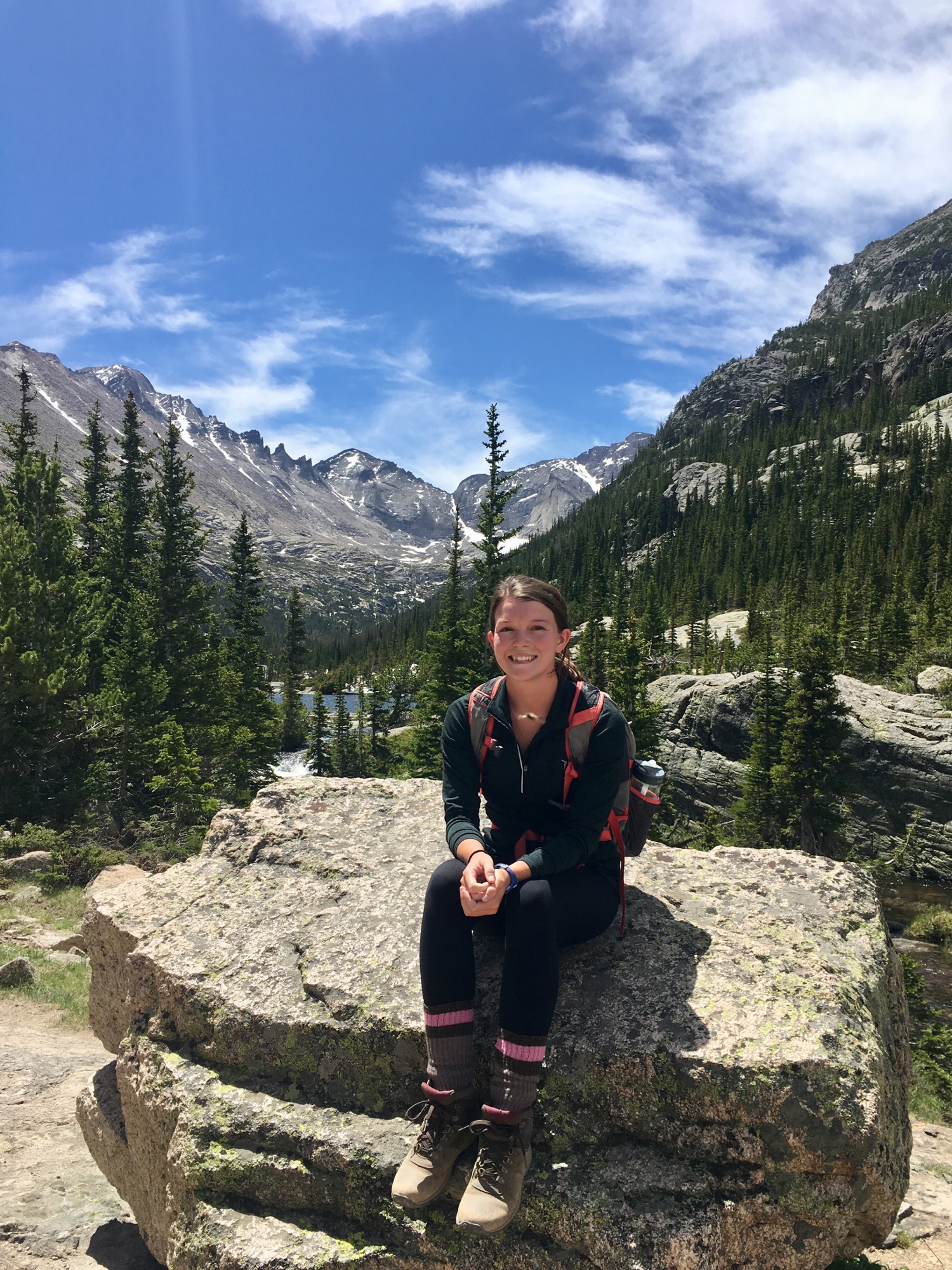
Growing up, Auburn University student Tristan Orndorff spent a lot of time outdoors, camping with her grandparents. Her grandmother loved to tell her all about the rocks around the property they owned on Lake Jordan. Tristan said this is where her interest in Geology began. “I was interested in it, but I got nervous about going to college to study Geology because I didn’t know anyone who worked in that field,” Tristan said. When Tristan, who is originally from Millbrook, Alabama, first started her education at Auburn, she decided to study Animal Sciences, but she said that didn’t last very long. “After two weeks I went to my advisor and said ‘I can’t do this’,” she said. “I needed another direction.” After looking into a few other degree options, Tristan came back to Geology, and has been a College of Sciences and Mathematics (COSAM) student since. “As soon as I visited the Geology Department, I knew that was it!,” she said. Tristan is a senior graduating in May and said she is excited about the possibility of a future career outside of an office, and added that she has enjoyed studying Geology at Auburn University. “Everyone that is in Geology is really similar to me,” she said. “We aren’t uptight and we’re pretty relaxed. It’s a different kind of atmosphere.” While a student at Auburn, Tristan has received a Geology scholarship from Vulcan Materials Company, and won the “Outstanding Junior” Award in Geosciences last year. She has also attended the Geology Field Camp and studied abroad in Scotland. Tristan is also in Auburn University’s GeoClub, is completing an apprenticeship with a graduate student in Geology, and also works in an Environmental Science lab. For fun, Tristan said she enjoys running and spending time with her dog. She said some of her favorite classes she has taken at Auburn include Calculus 2 with Daniel Savu and Geology courses with Dr. Charles Savrda. “He makes Geology really interesting,” she said of Dr. Savrda’s teaching. “He’s really detailed and you know what to expect from him. I feel like we’re learning a lot and we apply it. It’s just not facts that we’re never going to use.” Tristan hopes to attend graduate school at Auburn University beginning this summer to study Paleoenvironmental Science. She said switching from Animal Sciences to COSAM has been a decision she is proud of. “It’s been hard,” she said. “But it’s been worth it.”

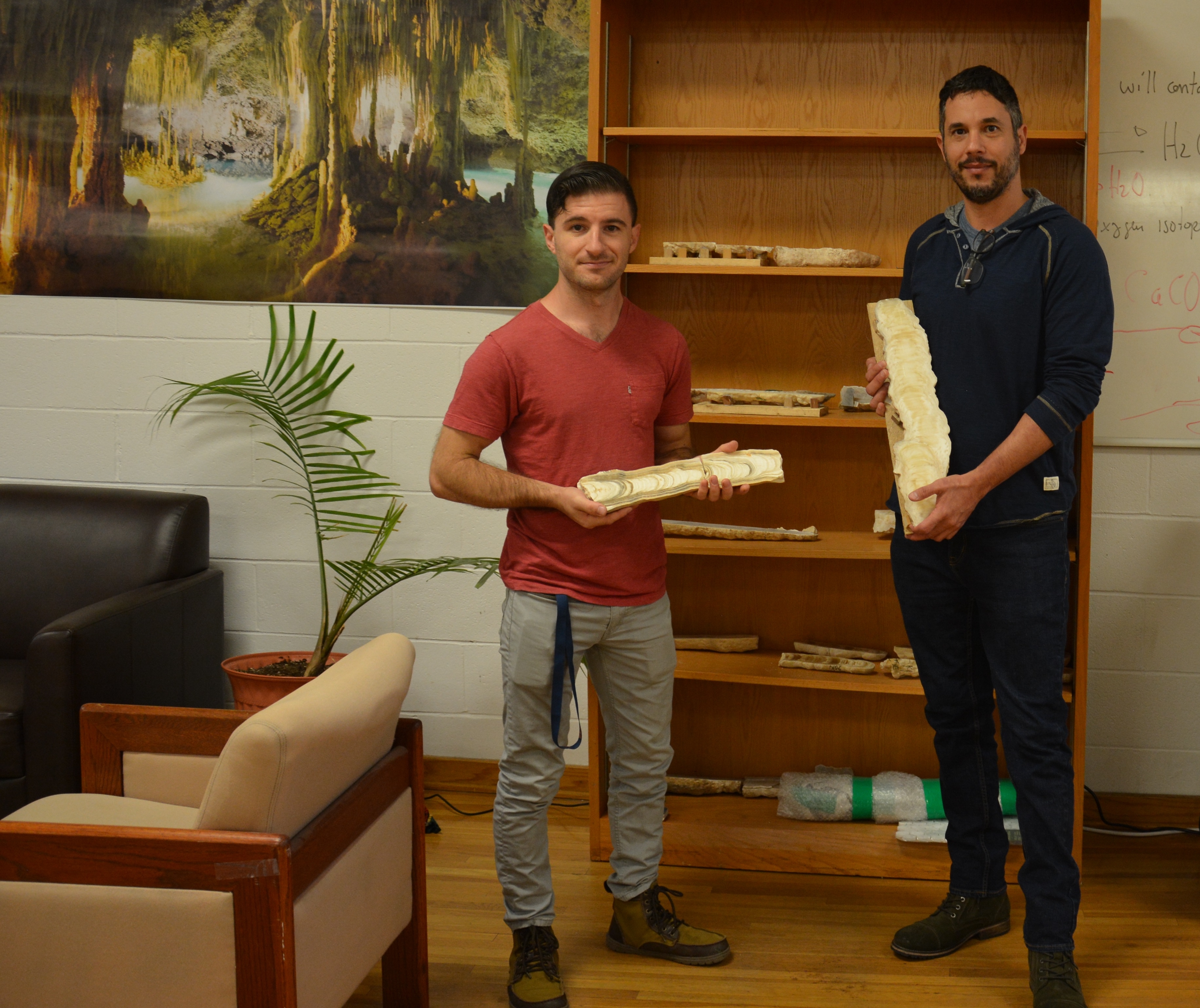
“Every cave is a library of climate and environmental information,” Martin Medina, an associate professor in the Geosciences Department of COSAM, explains. Medina’s main area of research is paleoclimatology, which is the study of past climates, and to him, caves are vital for understanding the past, present and future. Using stalagmites from caves in different Caribbean regions, Medina and his lab team are able to reconstruct past climates, dating back to hundreds of thousands of years.

Geography Awareness Week celebration will be held on Wednesday, 28 November 2018 on Cater Lawn from 11 am to 1 pm. There will be free pizza, games, and more! We look forward to seeing you there!
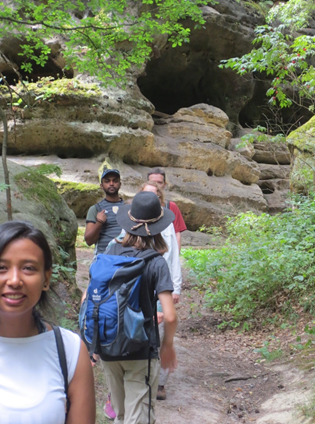
Megha Shrestha, a student in the Department of Geosciences, spent her summer on a three-month internship in Freiberg, Germany. As one of the 25 Research Internships in Science and Engineering (RISE) professional alumni for 2018, she worked for a mining company, and analyzed and scripted geospatial works. This opportunity was provided by the German Academic Exchange Service or DAAD. “From work to travel to food to meeting new people, there was a new memory every single day,” explains Shrestha. In addition to her position in Germany over the summer, she also traveled to historical cities throughout Europe including Leipzig, Chemnitz, Heidelberg, Munster, Frankfurt, Prague, Budapest and Amsterdam. Shrestha is aspiring to be a Ph.D. candidate in the Earth System Science at Auburn University. She says that she “is looking forward to working in the research and development sector where she can work towards urban sustainability using cutting-edge geospatial technologies especially in the field of Geographic Information Systems (GIS), Remote Sensing (RS) and programming.”
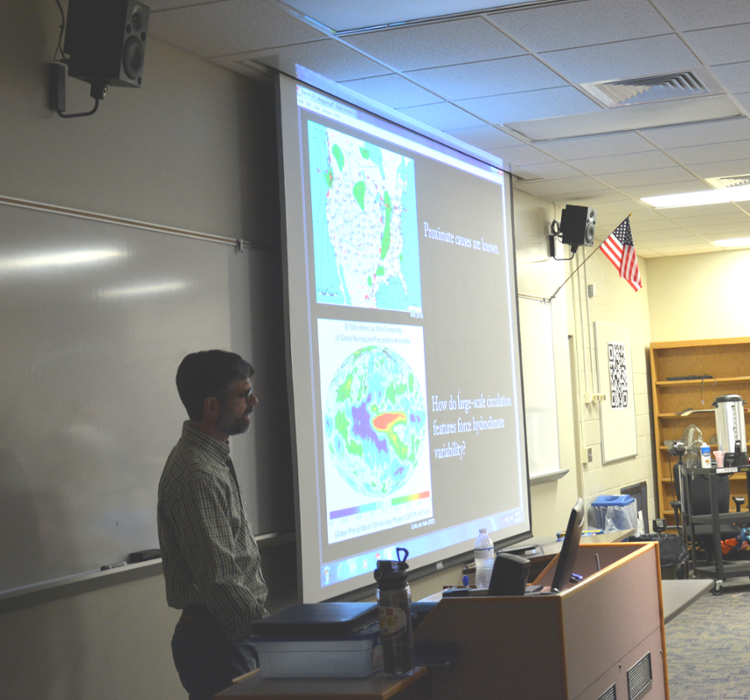
On September 13, 2018, Auburn native Dr. Matthew Therrell from the University of Alabama’s Department of Geological Sciences is the first invited speaker of the fall semester for Geosciences. Dr. Therrell received his Ph.D. in environmental dynamics. He is a paleo-climatologist whose specialty is climate reconstruction using tree ring data. During his dissertation research, he traveled through Mexico and South America.
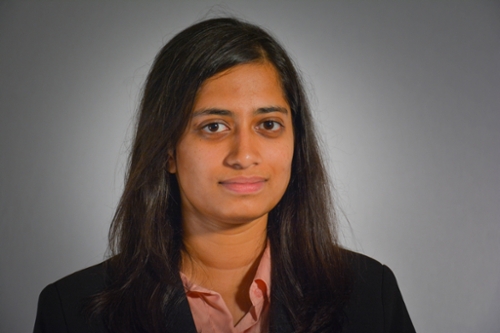
Neeraja Chinchalkar, a graduate student in Geosciences, is the recipient of the Barringer Impact Crater Award for Student Research, an international award given only to a handful of students from around the world each year. Chinchalkar is studying the Wetumpka impact crater in Elmore County, Alabama, which was formed approximately 85 million years ago. “Auburn University has an outstanding proximity for field work,” states Chinchalkar. Since the crater is just an hour away, she is able to more frequently conduct research allowing her to learn and grow in her field.
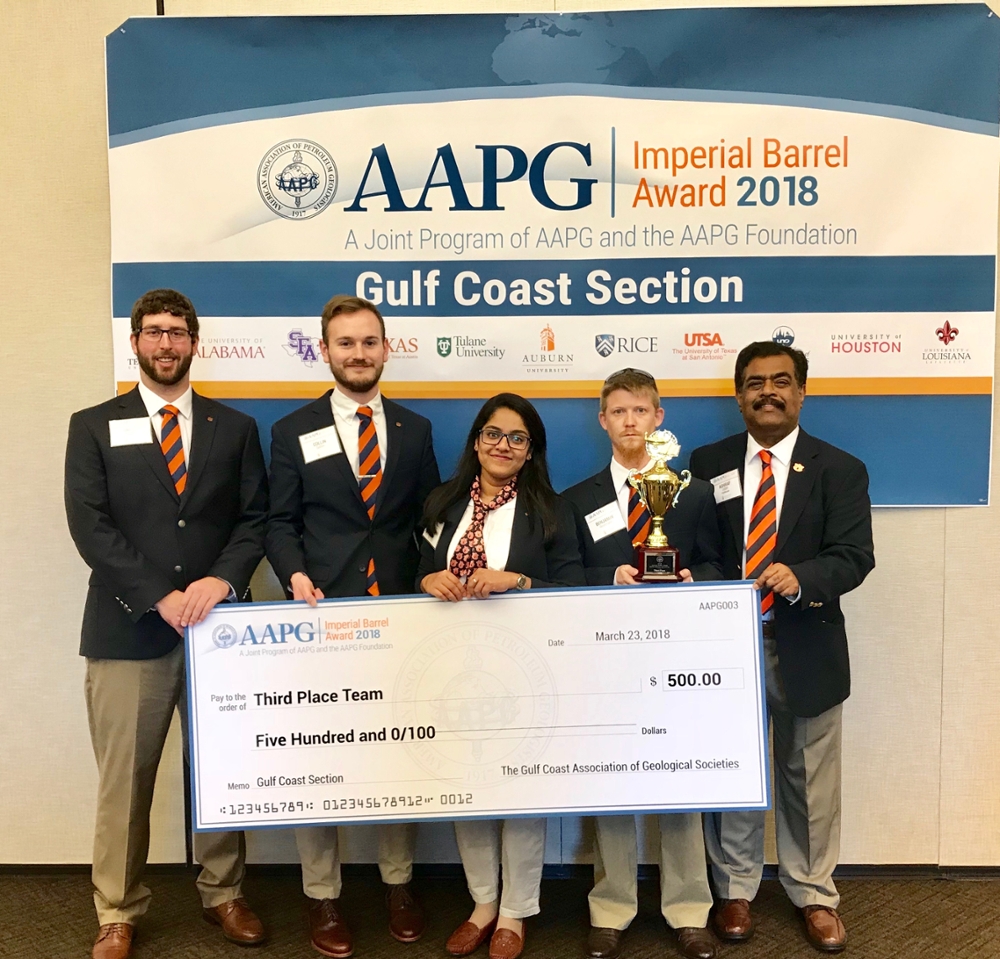
For the first time in Auburn history, Department of Geosciences graduate students placed highly at the prestigious annual competition of the Imperial Barrel Award, or IBA, in Houston, Texas. Eleven schools from the Gulf Coast region competed, including six schools from Texas (University of Texas at Austin, Texas A & M University, University of Houston, Rice University, University of Texas at San Antonio, Stephen F. Austin State University), three from Louisiana (Tulane University, University of Louisiana at Lafayette, University of New Orleans), and two from Alabama (Auburn University and University of Alabama).

Do Karoo Basin rocks record the continental expression of the Mother of Mass Extinction?
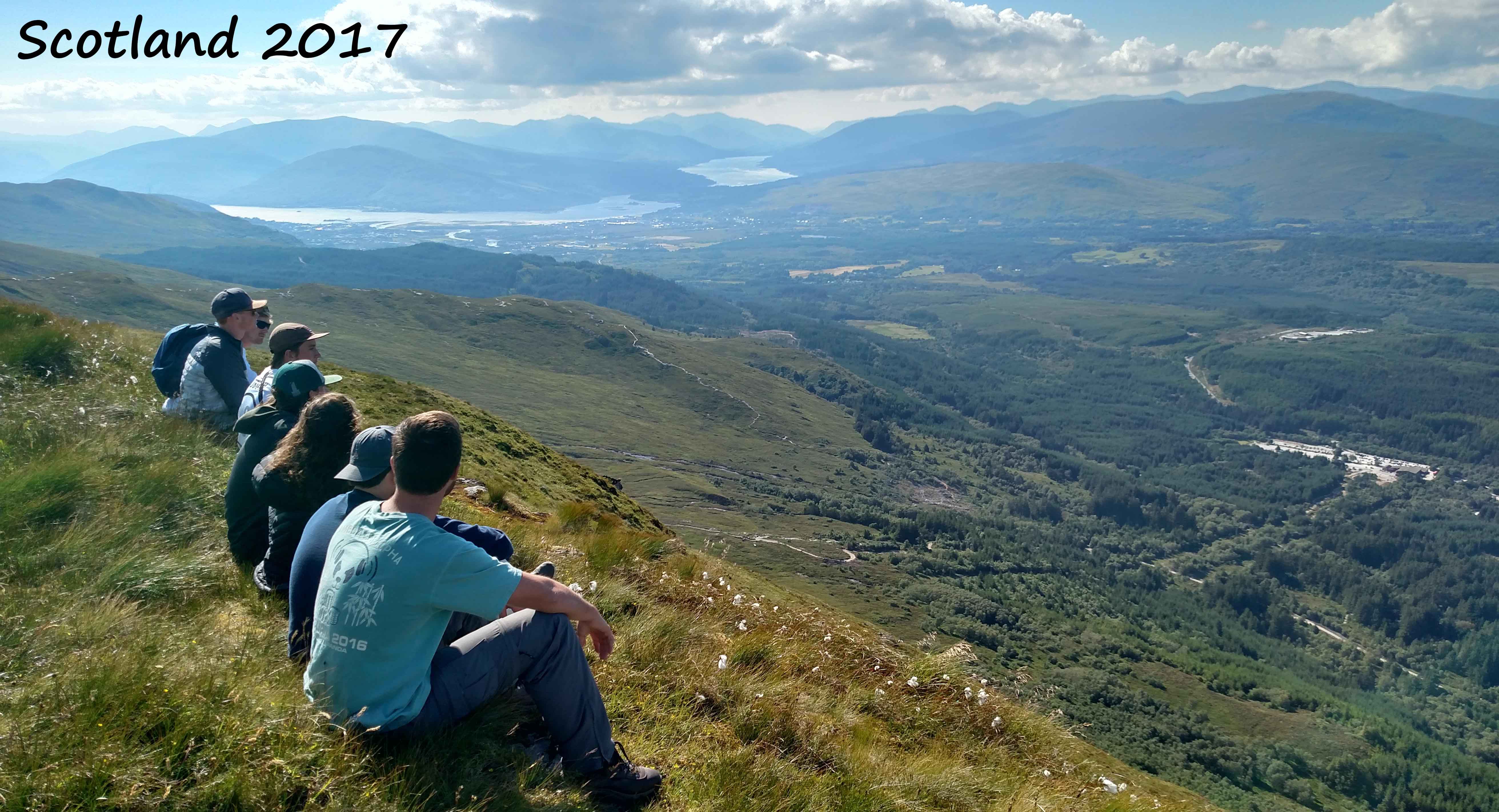
Tasha Williams was certain she wanted to take a traditional path to medical school by majoring in organismal biology. Now she is not so certain. A recent study abroad trip to Scotland with the Department of Geosciences opened her imagination to a new approach to medical school, as well as new career options. “The trip taught me to be open to life’s possibilities,” said Williams. “I gained so many experiences and insights I wouldn’t have been able to access through classroom instruction alone. Both academically and personally. The study abroad trip was a life-changing experience that broadened my horizons in the field of geological science. With my newfound interest, I am now considering a career in the geosciences.”
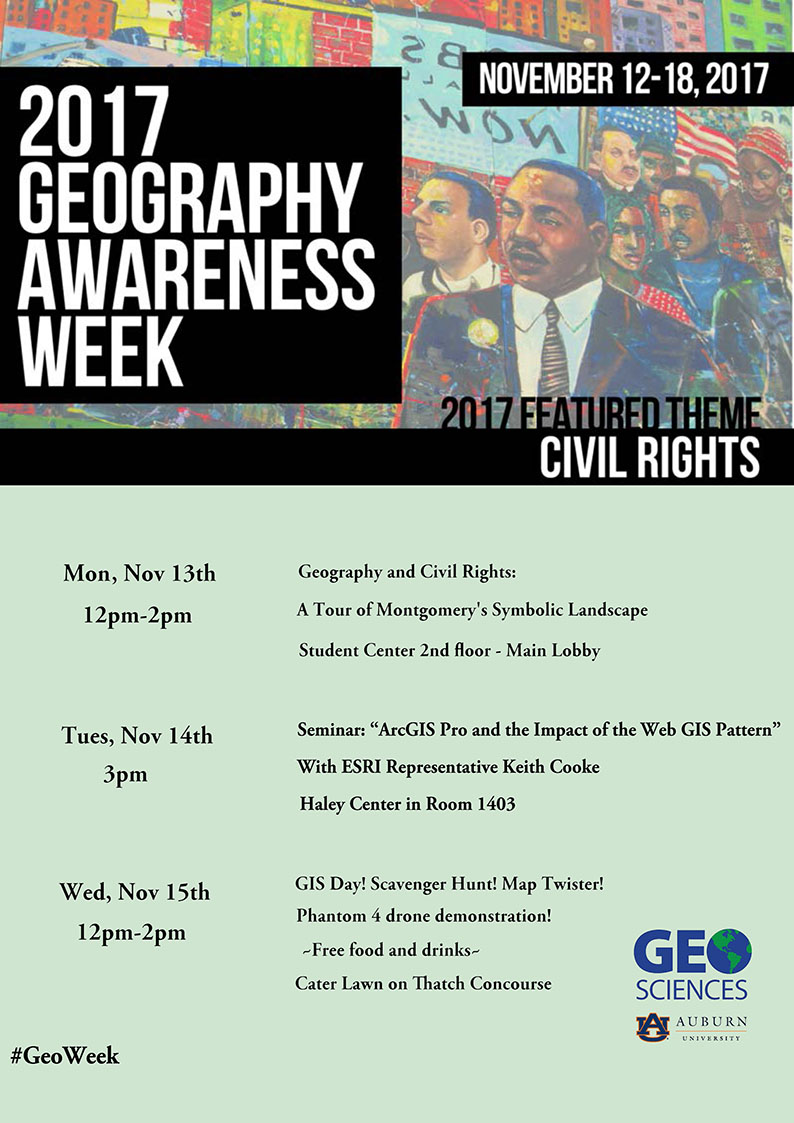
Please join us in celebrating Geography Awareness Week (GAW) this week, November 12-18th, 2017. This year’s theme is “The Geography of Civil Rights Movements."
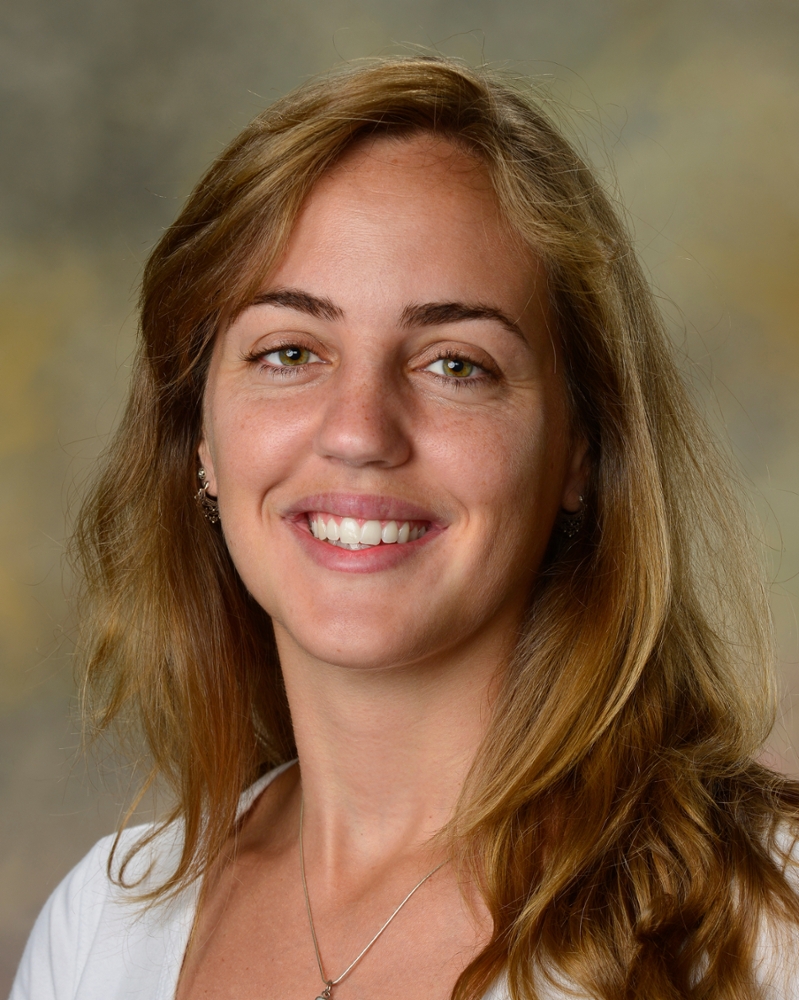
Geology graduate student Leticia de Marchi is the recipient of a prestigious international award from the Barringer Family Fund for Meteorite Impact Research, which provides funding to students interested in the study of impact cratering processes. The highly competitive grant is presented to approximately four students each year to support field research at known or suspected impact sites worldwide.

Edward Thomas, Jr., the Charles W. Barkley Endowed Professor in the Department of Physics, has been named the next Associate Dean for Research and Graduate Studies in the College of Sciences and Mathematics. His tenure will begin on August 1, 2017. “I am very pleased to have this opportunity to serve the College of Sciences and Mathematics,” said Thomas. “COSAM has very talented faculty and students who are pursing leading edge research, and I want to play a role in widely promoting our research capabilities and helping faculty and students achieve even greater successes in building their research programs.”
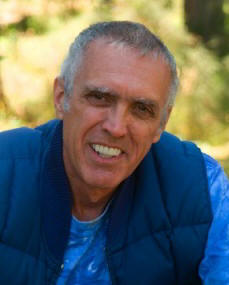
The COSAM Honors Convocation recognizes outstanding student and faculty achievement. The 2017 ceremony was dedicated to retired Professor of Biological Sciences Stephen Kempf. During ceremony, more than 250 students and faculty were honored, including all freshmen, sophomore, junior and senior students who have maintained a perfect 4.0 grade point average. Also recognized were the Dean’s Medalists, Outstanding COSAM Graduate Teaching Assistants, the Outstanding COSAM Faculty Advisor, the Outstanding COSAM Teacher, Comer Award recipients, the President’s Award recipient, the Student Government Association Award recipient, and Outstanding Juniors from each of COSAM’s five departments.
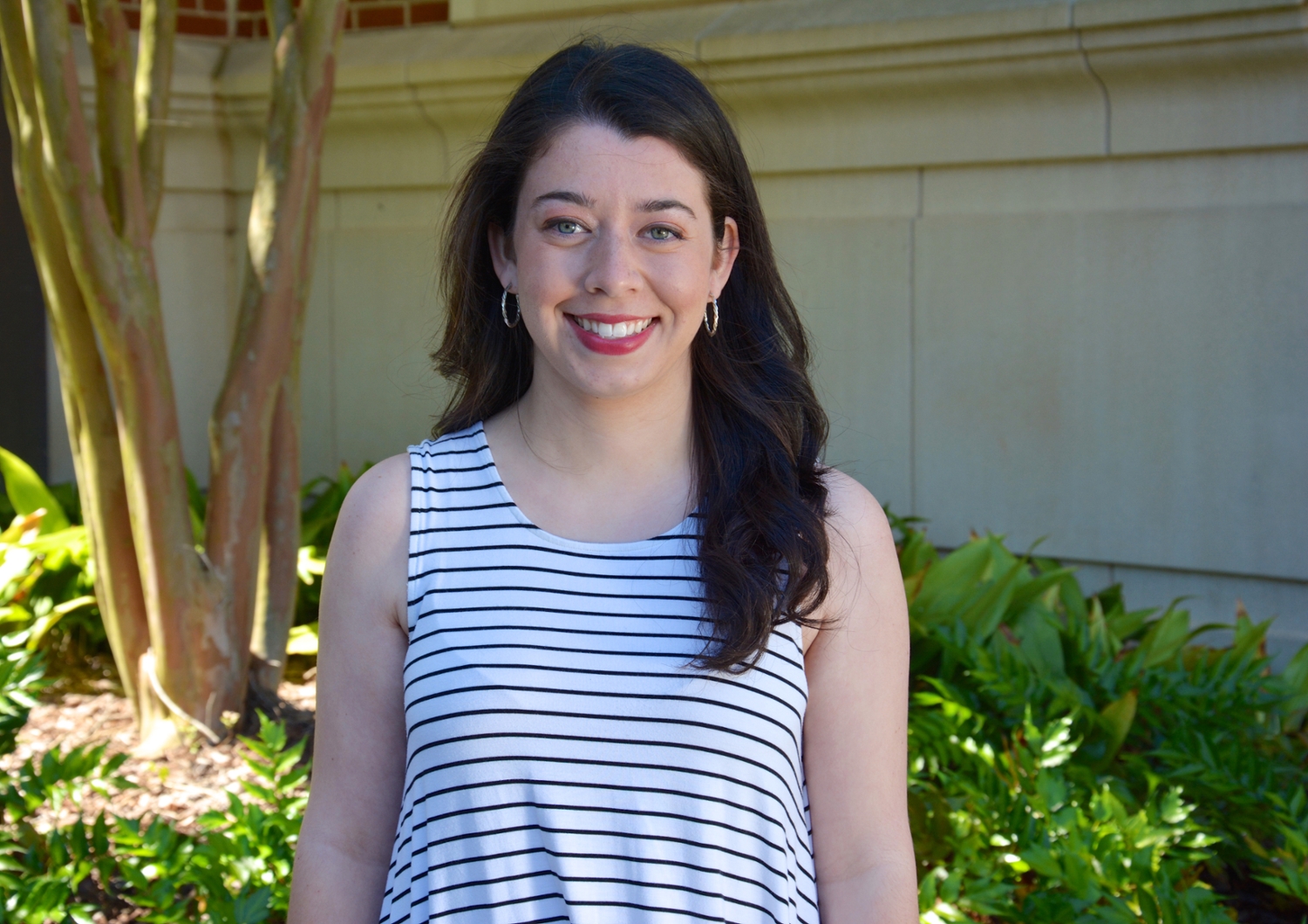
For COSAM Graduation Marshal Abigail Gauthier, a double major in biomedical sciences and Spanish, meeting the healthcare needs of the Hispanic population is both a goal and passion. “My mom immigrated to the United States from Columbia when she was a little girl, so a lot of my family is bilingual, so it’s very important to me to be formally trained in the Spanish language and to explore that part of my heritage,” said Gauthier. “My family integrated pretty quickly, but I want to help people who may be struggling more than they did. I think that immigrants face a really big challenge in a monolingual healthcare system, and I think it’s something that a lot of people don’t realize or don’t talk about, and it’s really important. It’s a need that I could help alleviate if I worked really hard. Just being able to communicate with someone in their native language is really important to help them feel more comfortable, and because trust is such a huge part of medicine, it is important to me to make them feel as comfortable as possible.”

Need a core-science credits? You can knock out both courses this summer!
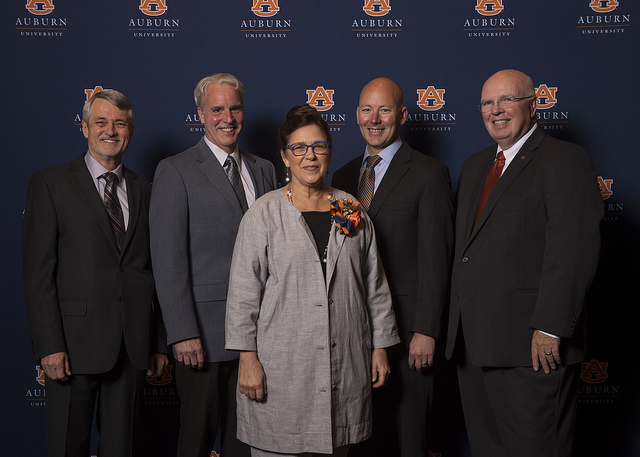
Auburn University honored its 2016-2017 Faculty Awards recipients Tuesday night at The Hotel at Auburn University and Dixon Conference Center, recognizing some of the institution’s most innovative teachers, researchers and scholars for their unique and distinguished contributions to the university’s mission. Presented annually, the Faculty Awards honor individuals and groups of faculty for excellence in teaching, research and outreach. Following a competitive review process, recipients are chosen by selection committees comprised of faculty, staff, students and alumni. The honorees Tuesday night were named in 2016.
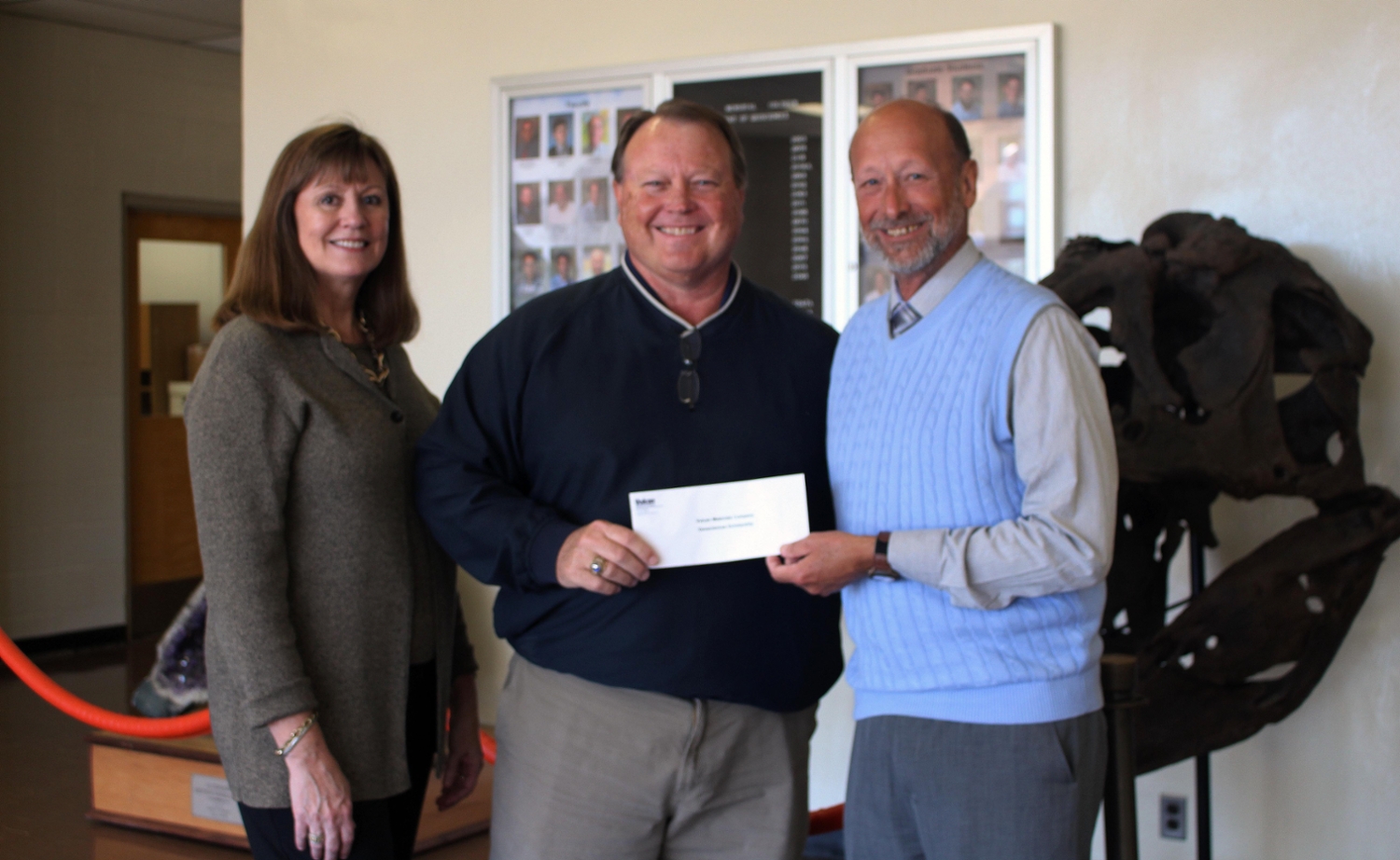
The Department of Geosciences received a $5,000 gift from Vulcan Materials Company in Birmingham to fund the company’s annual scholarship.
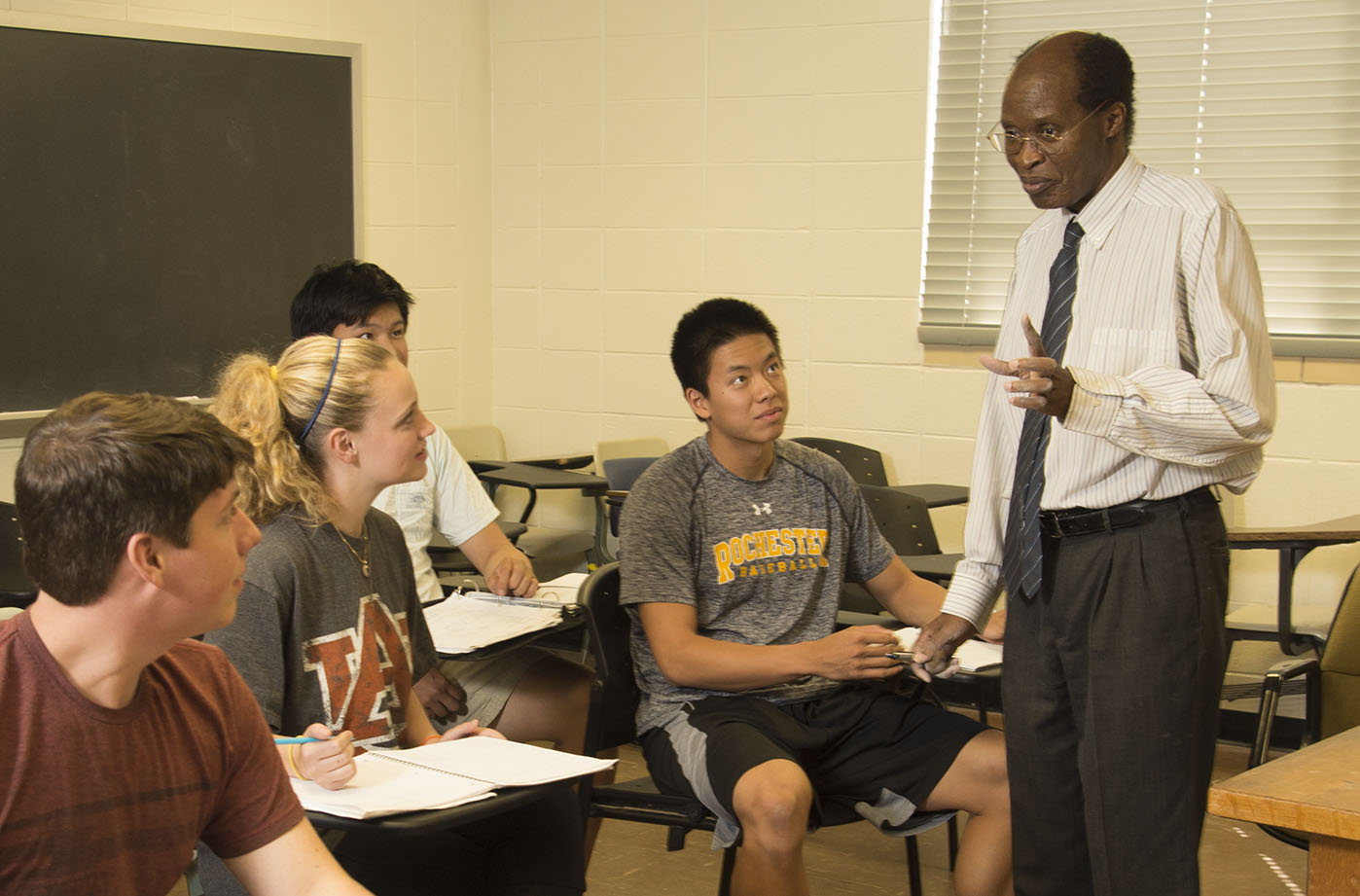
The National Science Foundation, or NSF, issued more than $2 million in grant funding to COSAM’s Overtoun Jenda, assistant provost for special projects and initiatives and professor of mathematics, for a five-year, multi-institutional, collaborative project titled, “Making to Advance Knowledge, Excellence, and Recognition in STEM,” or “MAKERS.” Co-primary investigators on the project are Auburn’s Asheber Abebe, professor in the Department of Mathematics and Statistics, and Alan Wilson, associate professor in the School of Fisheries, Aquaculture and Aquatic Sciences.

More than a millennium ago, in what is now southern Mexico and northern Central America, the ancient Mayan empire stretched across an area the size of Texas. The Maya civilization flourished along the Yucatán Peninsula and built temples now regarded as one of the “Seven Wonders of the World,” until approximately A.D. 1000 when the Maya territory inexplicably disappeared. For centuries, the collapse of the Maya civilization has both intrigued and puzzled researchers as studies have examined sociopolitical factors, endemic warfare, migration and many other circumstances at the time of the Mayan’s demise. A recent study by Martin Medina, associate professor in Auburn University’s Department of Geosciences, has determined that drought due to low tropical storm activity could be to blame for the Maya civilization collapse.
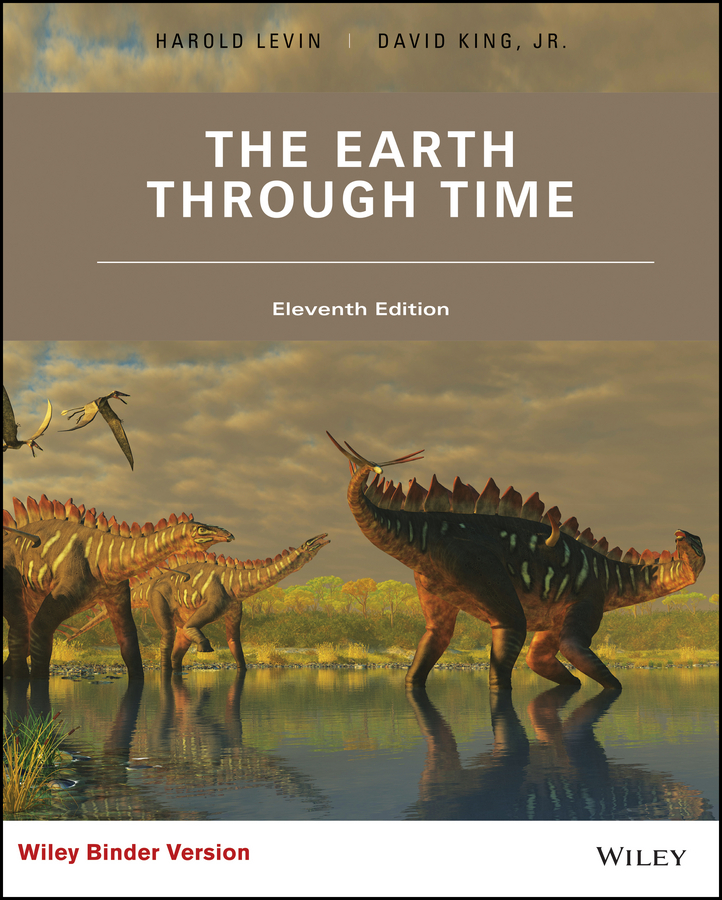
David King, professor in the Department of Geosciences, along with Harold Levin, of Washington University, have co-authored a new edition of the widely-used geology textbook, “The Earth Through Time.” The book, used by the Department of Geosciences since the mid 1990s, chronicles the Earth’s story, from the time the Sun began to radiate its light to the beginning of civilization, while also presenting the history of the Earth and the science behind it. The authors strived to convey the unique perspective and value of historical geology, and to improve the presentation to stimulate interest and enhance the reader's ability to retain essential concepts.
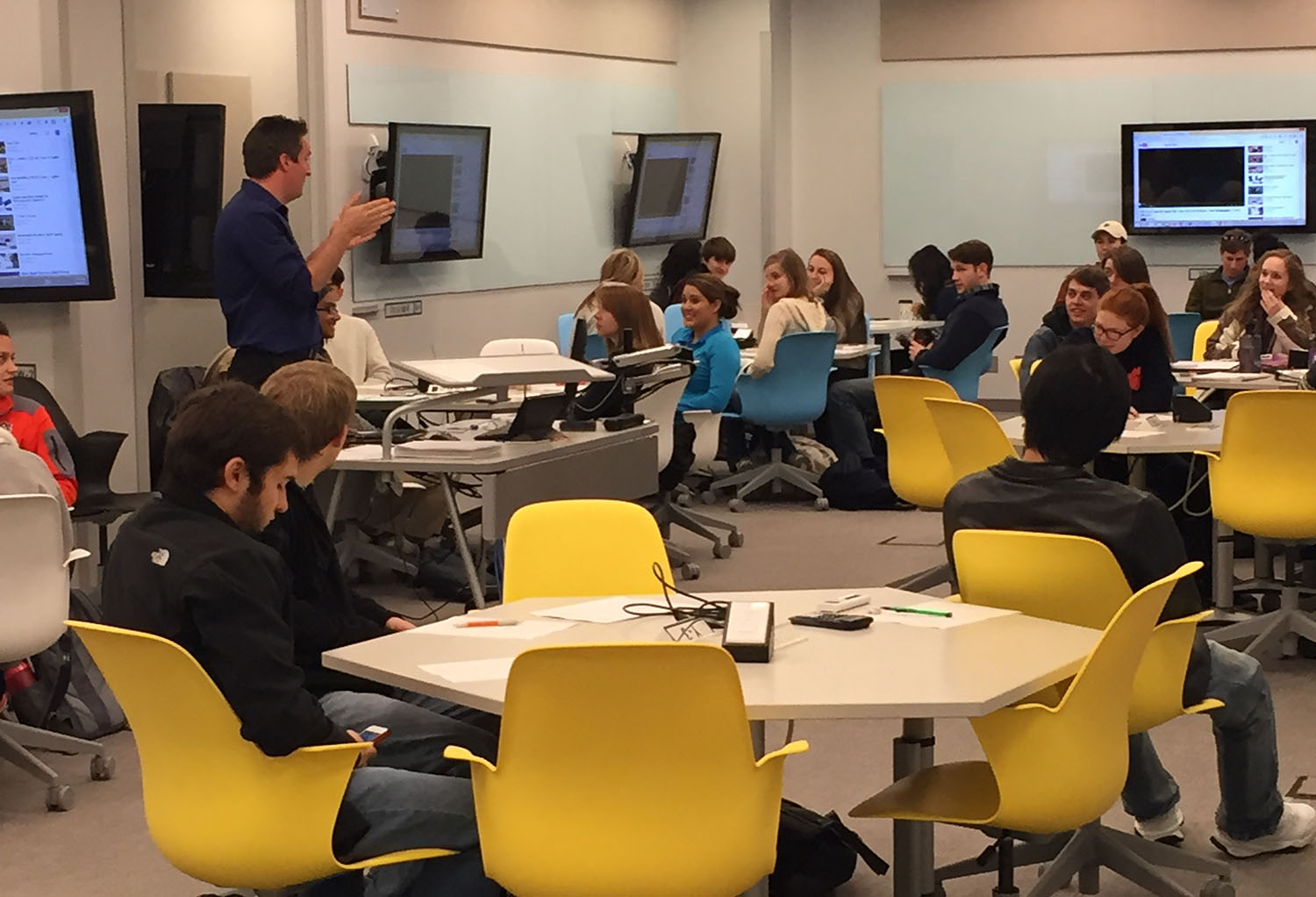
Quality faculty and staff allow the college to build upon the already-stellar reputation and strengths of a COSAM education. Our faculty and staff offer the intellectual capital upon which strong programs, innovative research, and student success are built. As we embark on a new academic year, the college would like to extend a warm welcome to the newest members of the COSAM family.
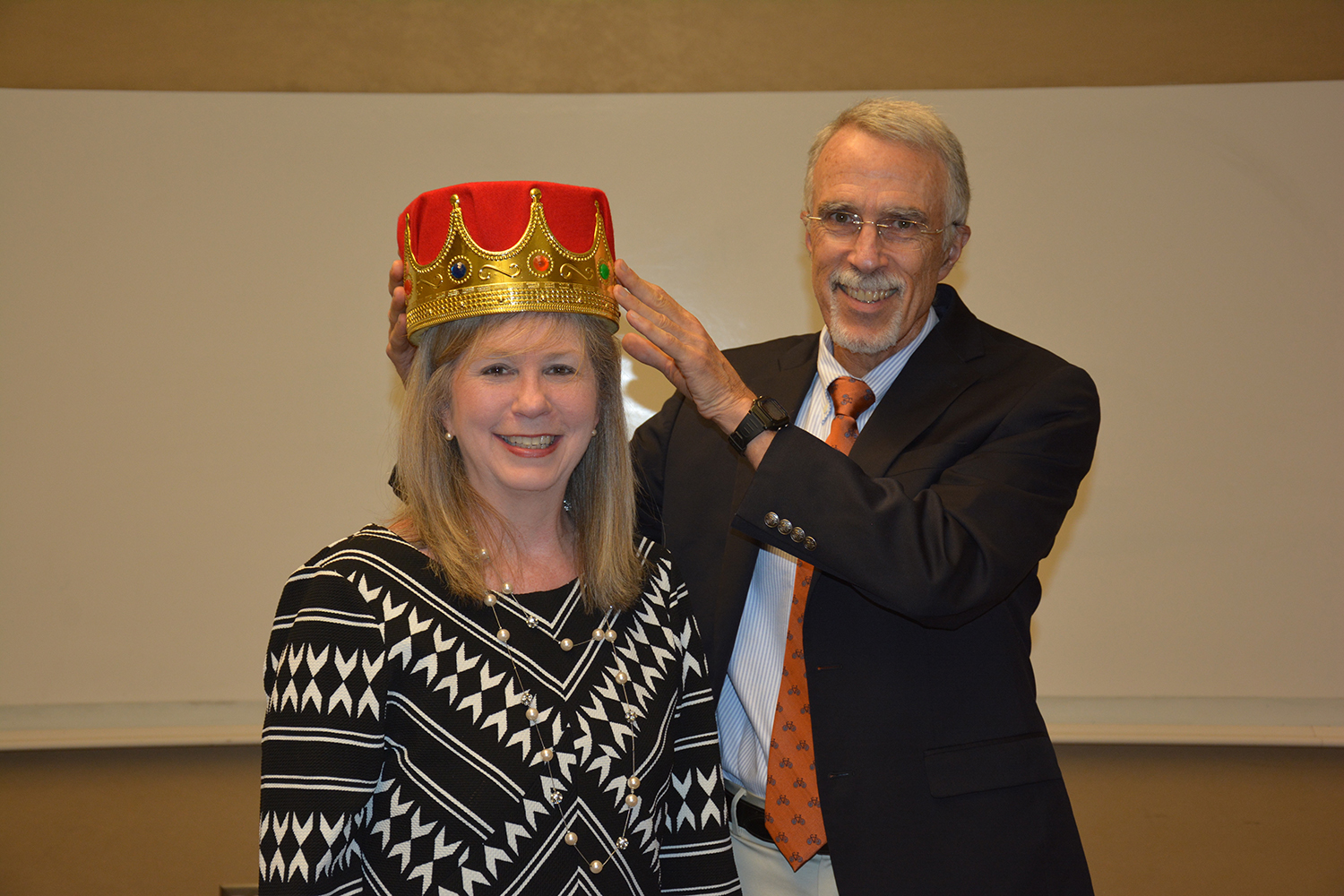
Congratulations to the Department of Geosciences for having the most participation in COSAM’s 2016 Faculty Staff Campaign. Representing the Department of Geosciences with 81 percent participation was Team Captain Sheila Arington.
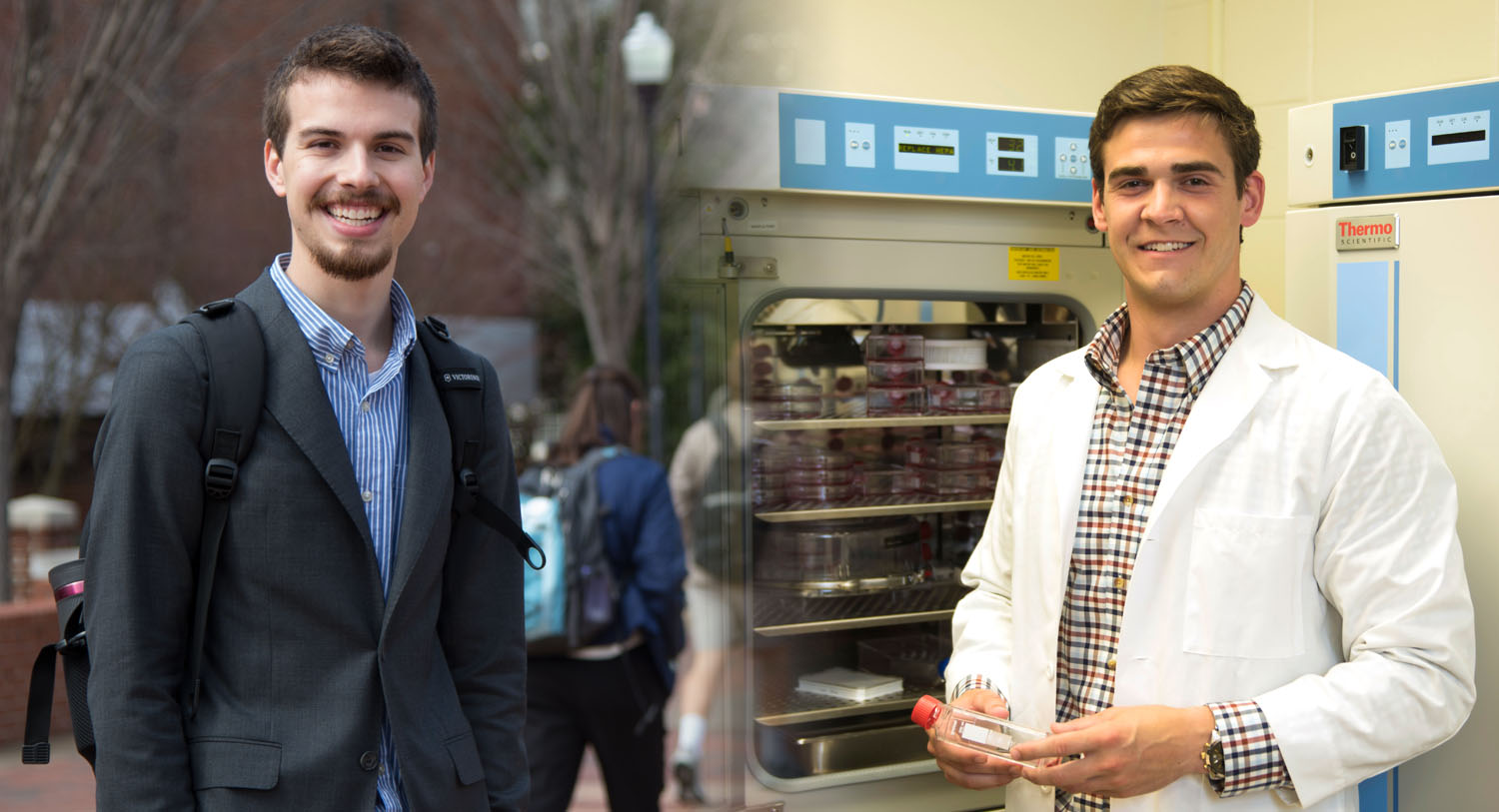
Austin Bush and Taylor Young represented the College of Sciences and Mathematics at the fall 2015 and spring 2016 commencement ceremonies, respectively. Student marshals are selected by an awards committee from each college. To be considered, students must have completed a minimum of four semesters at Auburn University with a scholastic average of 3.40 (graduating Cum Laude) or higher and possess qualities of leadership, citizenship, character and promise of professional ability.
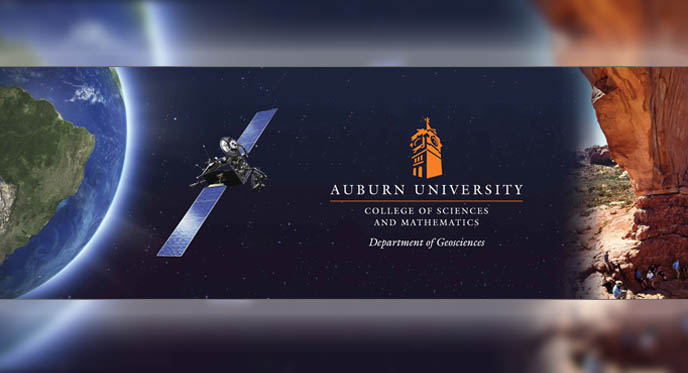
The Department of Geosciences was awarded the Departmental Award for Excellence in Education as part of the 2016 Faculty Awards recognizing some of the institution’s most innovative teachers, researchers and scholars for their unique and distinguished contributions to the university’s mission.
Our group was briefed in the airport lobby. Auburn University Climatology Class of 2016 taught by Dr. Chandana Mitra (Geosciences) had a wonderful and productive trip to Auburn University Regional Airport's weather station. They were able to examine active weather monitoring equipment and were able to ask question of experts in the field. Some of the more modern instruments they saw and learned about were the barometer, wind vane and anemometer, continuous-recording rain gauge, transmissometer, and their newest instrument, a laser ceilometer.
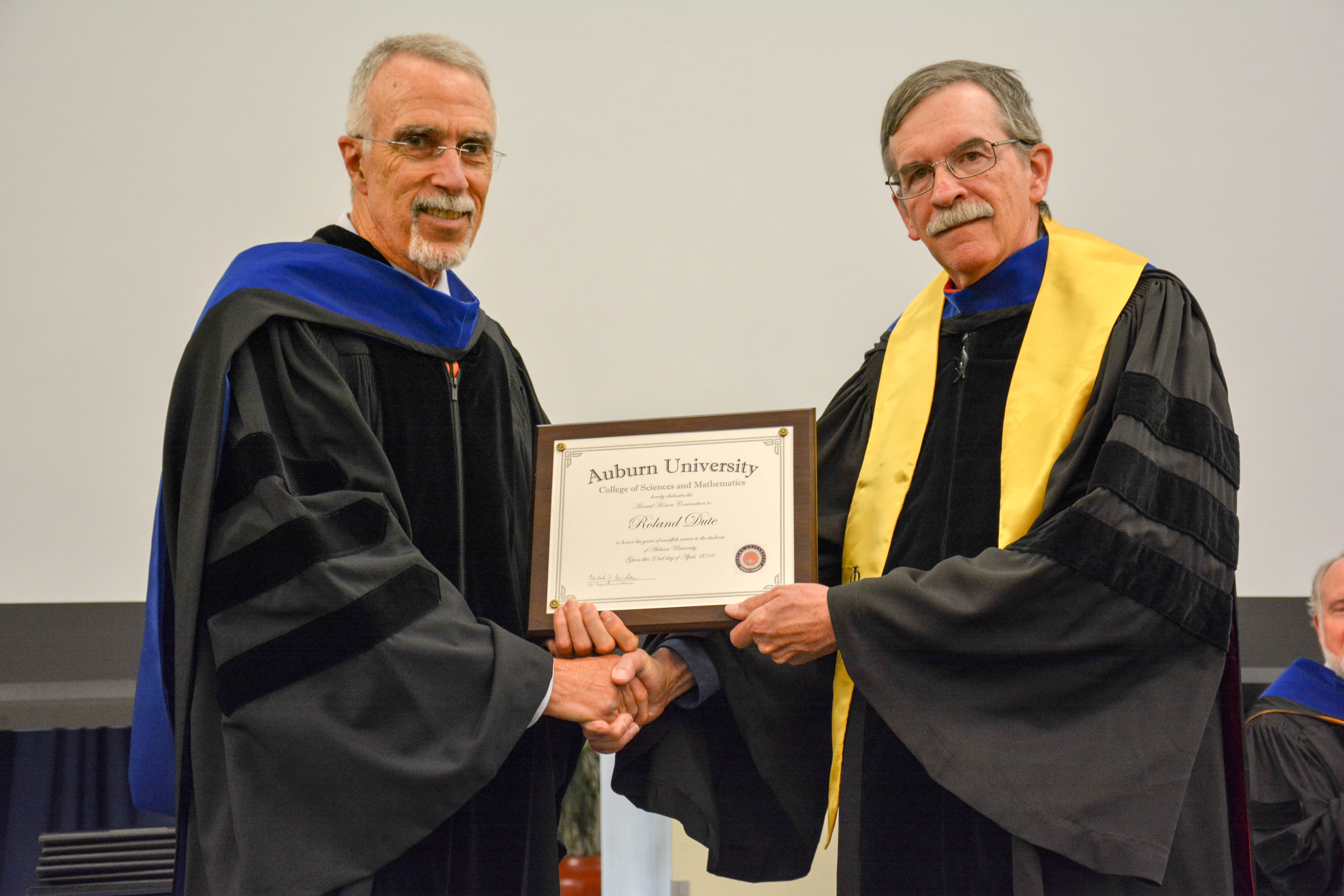
COSAM recognized top students and faculty at the annual Honors Convocation, which took place on April 23 in the Auburn University Student Center Ballroom.
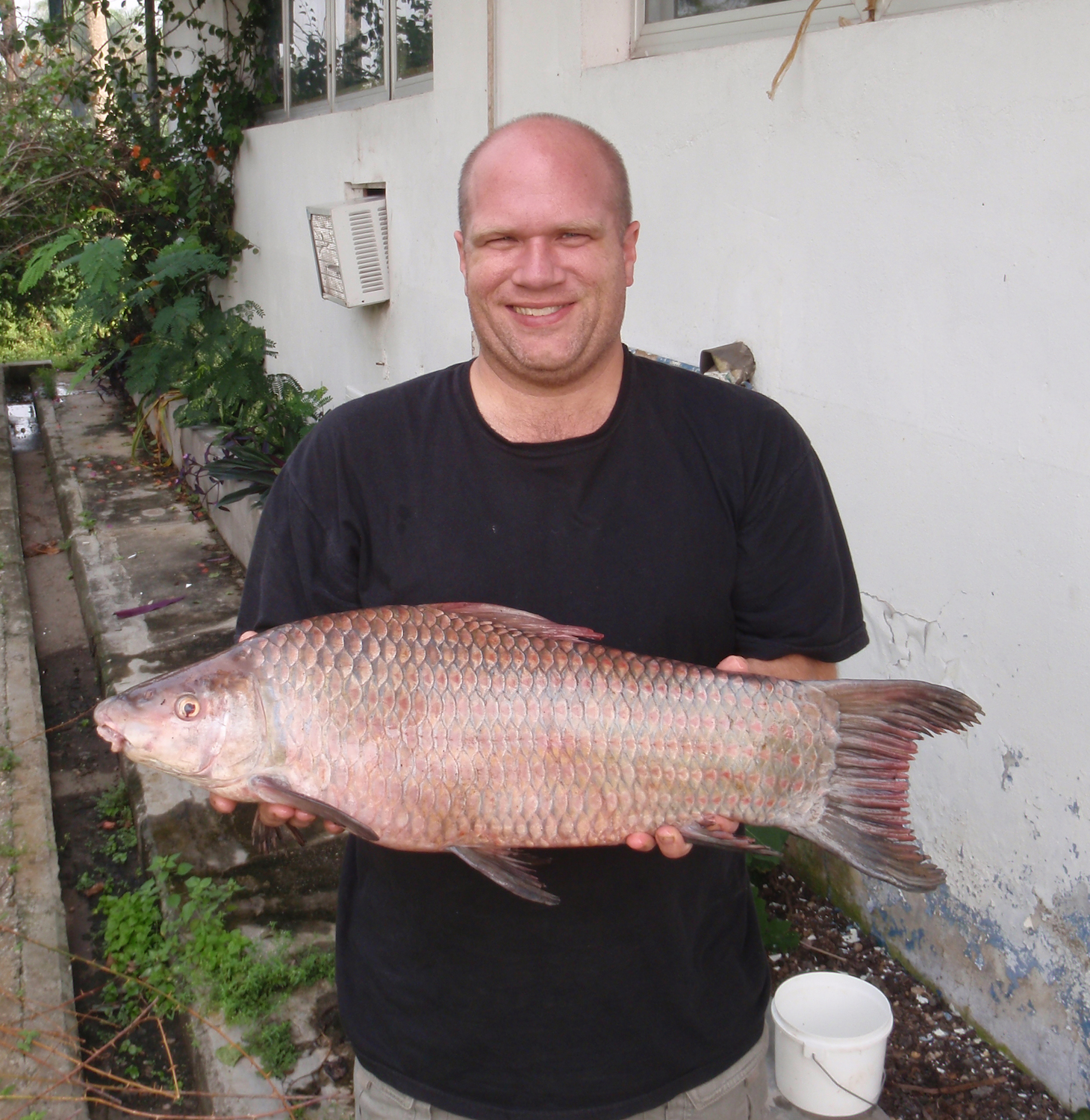
Auburn Professor Jonathan Armbruster has been named the new director of the Auburn University Museum of Natural History in the College of Sciences and Mathematics. His term began April 1. Armbruster joined Auburn in 1998 as an assistant professor. He was named an associate professor in 2003, and an alumni professor in 2007. He has served as curator of the museum’s fish collection where he has grown the collection from 25,000 jars to 65,000, obtained a specimen from every continent and developed online searching capabilities through a database system. His area of research involves the systematics, ecology and functional morphology of fishes, particularly suckermouth armored catfishes, or Loricariidae, the largest family of catfishes in the world, also known as plecos in the aquarium trade. He is also involved in survey work of several regions of South America including Guyana and Venezuela, and also works on local projects involving ecology, behavior and systematics of fishes. Recently, Armbruster has begun collaborative work in a worldwide project, “All Cypriniformes Species Inventory,” which facilitates taxonomic work on minnows. His lab is particularly interested in the barbs of Africa, and relationships of taxa worldwide. As part of this study, he has built a global database of minnow morphology, and will use the information to explore aspects of the evolution of cypriniform ecology and functional diversity. “I have been striving to make the collections at Auburn University into a museum since I arrived in 1998,” said Armbruster. “Now that Dr. (Jason) Bond has ushered us into a new building and upped our community presence, the question becomes what to do next. I hope to begin series of initiatives in teaching and outreach over the next couple of years to further cement the museum’s position in the Auburn University community and beyond.” Armbruster received his bachelor’s and doctorate degrees from the University of Illinois. Before his time at Auburn, he worked as a postdoctoral fellow at the Smithsonian Institution. Throughout his career, Armbruster has secured a number of research grants from the National Science Foundation, Alabama Department of Conservation and Natural Resources, and National Geographic, among many others. Aside from his extensive research, Armbruster has instructed many undergraduate and graduate-level courses including comparative anatomy, evolution and systematics, and systematic ichthyology. Armbruster has guided many graduate students to make new discoveries and publish their own work. Armbruster has given a number of lectures, received numerous awards for teaching and research, participated in many outreach events and has authored dozens of publications. He garnered international media attention in 2015 after naming a previously unknown species of catfish in honor of the Star Wars character, Greedo.
Auburn University is teaming up with the University of Alabama in Huntsville and Alabama A&M University in the newly formed Alabama Remote Sensing Consortium working with Teledyne Brown Engineering, which is providing state universities with imaging data of the earth's surface from NASA's International Space Station. Auburn researchers will use the data to potentially impact research in precision agriculture, forestry, biodiversity, emergency management, geo-intelligence, weather modeling and other areas.
Six New Positions in Climate, Human, and Earth System Sciences Faculty Cluster Hires
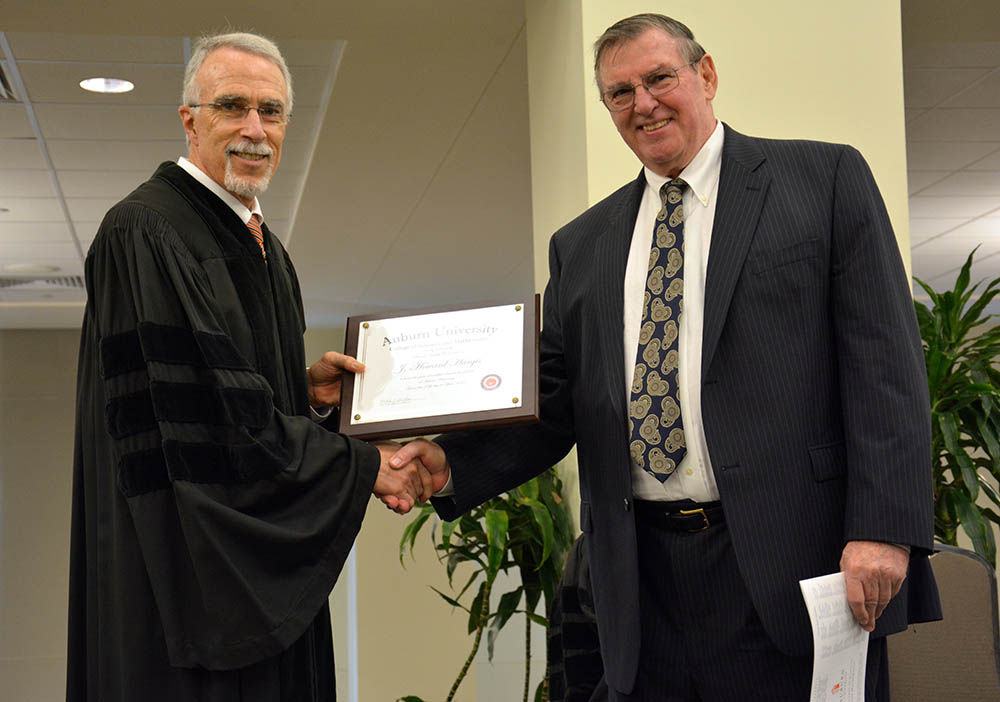
COSAM awarded top students and faculty at the annual Honors Convocation on April 25. This year, the convocation was held in honor of Howard Hargis, former head of the Department of Chemistry and Biochemistry. Hargis retired in 2004 after 34 years as a professor at Auburn. During the ceremony, students were recognized for outstanding academic achievement for the 2014-2015 academic year.
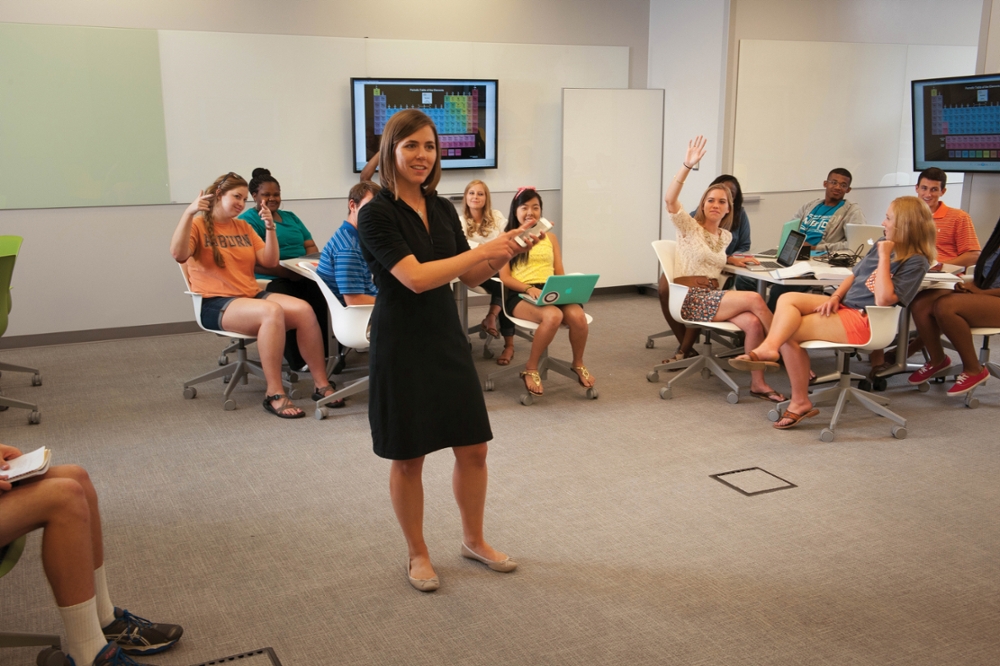
Auburn University's College of Sciences and Mathematics is "flipping the classroom" as part of an innovative way to teach Auburn students through a newly constructed Engaged in Active Student Learning, or EASL, classroom. Working with the Office of the Provost, the college is leading Auburn's effort on the unusual design since all Auburn students must take core classes in the college prior to graduating. "In contrast to traditional classrooms where faculty teach 'at' students, often in stadium-style rooms, this room was designed to encourage teacher-student interactions, and student-student collaborations, two aspects which are known to lead to improved learning outcomes," said COSAM Dean Nicholas Giordano. "COSAM faculty spent many months preparing to use the EASL classroom as effectively as possible in their teaching, and the new space was ready to use at the beginning of the fall 2014 semester."
Registration for the study abroad program in Scotland, “Walking in the footsteps of Hutton,” is now open? The course will start in Edinburgh, Scotland. We will be staying near the center of old town and will be within walking distance to many of the classic local attractions. Edinburgh is a modern city that still has all of its old world charm. You will be captivated by its unique culture, vibrant night life, and the sounds of distant bagpipes playing old Scottish tunes. With its free museums and affordable public transportation, you will be spoiled for choice of activities in your free time. After three days of indulging on the geology and culture of Edinburgh, we will leave the rolling volcanic hills and ancient volcanic remains for the rocky exposed shores on the northwest Highlands. We will start our exploration of the Scottish Highlands on the Isle of Skye, thought by many to be the most beautiful of the Inner Hebrides. We will enjoy the long summer days of northern Scotland by exploring many locations as rich in folklore as they are in geology. Upon leaving the Isle of Skye we will travel north to the vacation town of Ullapool. This small vacation spot is very pedestrian friendly, and you will be able to enjoy a late dinner of fish and chips out by the loch. We will spend several days in Ullapool before moving even more northward to the shores of Clachtoll Beach. You will see the true rugged nature of the Scottish Highlands and see how its rural and remote culture differs from that of Edinburgh. Toward the end of our highland journey, we will have the opportunity to venture out north of Kinlockbervie to visit a mid 1800’s bothy. The hike to the bothy alone is worth the effort due to its natural moors and beaches, but this will provide insight to the peat cutting culture and simple living of the northern Scots of the past. After our northern Scottish adventure is complete, we will return to Edinburgh to enjoy two more nights of this historic city before we depart for home. There will be three course offerings with this program: GEOL4930-GeoVenture, GEOL4300-Geodynamics, and GEOL4930-Directed Study. They are designed to target the non-geology/non-science majors, upper level geology majors, and intro geology majors. For more details about the courses and the overall trip costs, please view to above flyer or visit www.auburn.edu/~jfh0005/Scotland. If you have any questions please contact John Hawkins at jfh0005@auburn.edu.

AUBURN UNIVERSITY — The Auburn University Board of Trustees voted today to change the name of the Department of Geology and Geography to the “Department of Geosciences.” The change is due to the ever-widening areas of expertise of the department’s faculty and the resulting increase in both interdepartmental and interdisciplinary instruction and research. “Geology and Geography are diverse fields, and the expertise of our faculty spans a broad range of both the natural and social sciences, bridging them perhaps as well as any other unit at Auburn University, which makes us well suited for interdisciplinary research and instruction,” said Mark Steltenpohl, chairman of the Department of Geosciences. “Faculty expertise and research activities contribute to a variety of Auburn’s strategic research areas, particularly in health, the environment, and energy, and we collaborate with faculty in many units across campus, including those in the colleges of Sciences and Mathematics, Agriculture, Engineering, Human Sciences, Liberal Arts and Education, and the schools of Nursing and Forestry and Wildlife.”
Registration for a study abroad program in the Republic of Panama, "Climate Change and Environmental Management," is now open. The registration deadline is March 30. Participants will gain basic knowledge and skills in the science of climate change, analyze trends in climatic variability and human vulnerability in Panama, explore direct and indirect effects of a changing climate on water resources management and learn to use technologies such as GIS and remote sensing. The course is co-sponsored by the College of Sciences and Mathematics' Department of Geology and Geography and the Water Center for the Humid Tropics of Latin America and the Caribbean. To read the syllabus or register, go to this website. For more information, contact Chandana Mitra at czm0033@auburn.edu.
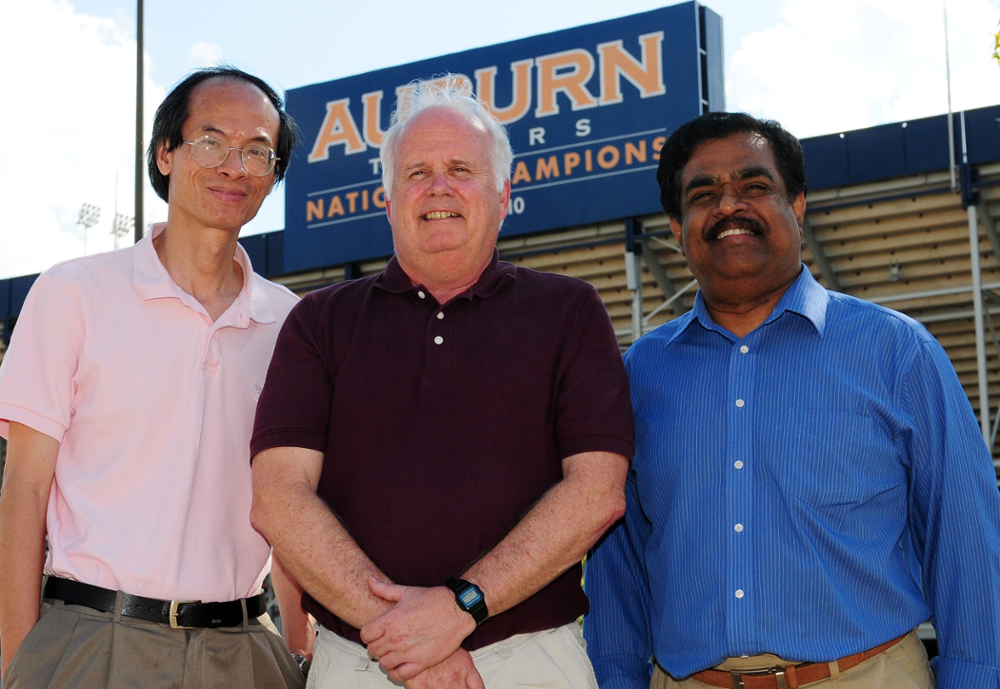
Professors James Saunders, Ming-Kuo Lee, and Ashraf Uddin, all of the Department of Geology and Geography, recently received a $345,000 three-year grant from the National Science Foundation for a project titled, “Metal(loid) Sequestration by Natural Bacterial Sulfate Reduction and Field-Scale Biostimulation.” The researchers will evaluate if indigenous sulfate-reducing bacteria can be stimulated to make nanoparticle biominerals of iron sulfides that have the capacity to remove arsenic from contaminated groundwater. Two sites will be evaluated: an industrial site in Florida that is routinely doused with arsenic-rich pesticides; and an alluvial aquifer in Macon County, Ala., where arsenic contaminates groundwater by a natural biogeochemical process. The project was funded jointly by the Environmental Engineering and Low-Temperature Geochemistry and Geobiology programs at NSF.
Dr. Shepherd earned her Ph.D. in Environmental Dynamics in 2010 from the University of Arkansas and currently holds the title of Assistant Professor in the Department of Environmental, Geographical and Geological Sciences at Bloomsburg University of Pennsylvania. Her research expertise falls within the area of fluvial geomorphology with a focus on anthropogenic impacts on fluvial systems and landscape evolution.
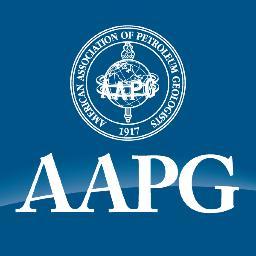
Student Chapters Breed Professional Success
Erik Heider has received a prestigious Barringer Family Fund
Does the record cold winter mean global warming is a myth? Auburn climatologist weighs in on climate change controversy
James Taylor: Seismic Locator for EarthScope, Summer 2010
Collins is running a "green fields" exploration project for African Barrick Gold, in western Kenya, and this is a picture of him showing some visible gold in drill core to the Kenyan Minister of Mines.
GIS Project Links Restaurants and Farmers
Congratulations to Ziaul Haque, for winning the American Association of Petroleum Geologists (AAPG) Weimer Family grant! Ziaul is a geology graduate student studying the petrofacies evolution of coarse clastics from the Cahaba Basin, Alabama, under the direction of Dr. Ashraf Uddin. He is the only graduate student to receive an AAPG award this year from the State of Alabama, and he also received a grant recently for the same project from the Geological Society of America (GSA).
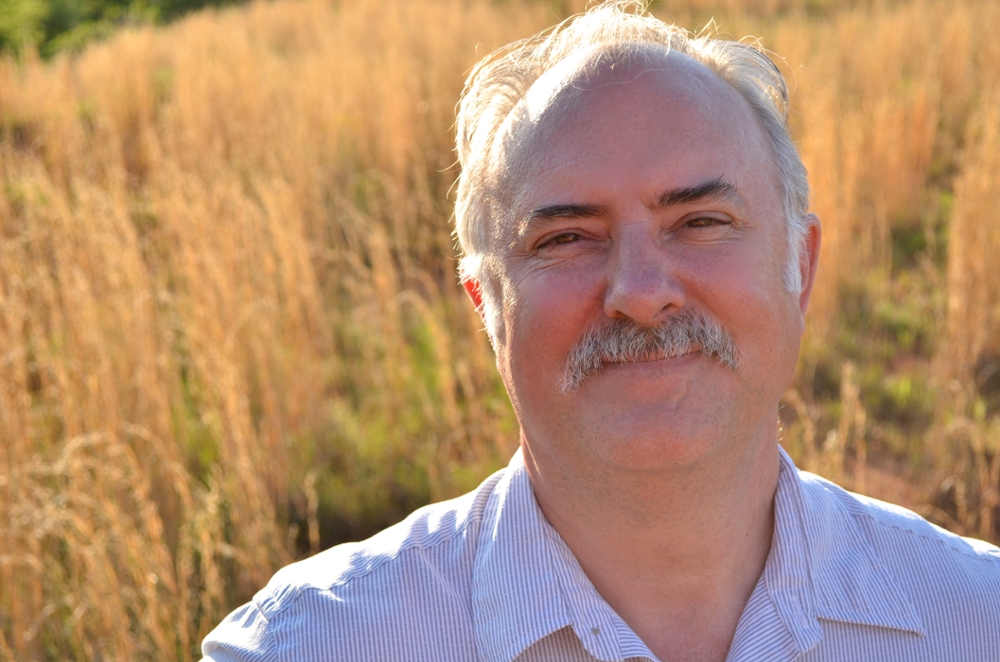
Over the past 20 years, Willis Hames, a professor in Auburn University’s Department of Geology and Geography, has seen his fair share of student athletes in his classroom. He teaches Physical Geology, a large, auditorium-style science class which fills up quickly because it’s open to students from diverse academic curriculums. Last semester, one of his students was Auburn University football star and instant legend, Chris Davis.
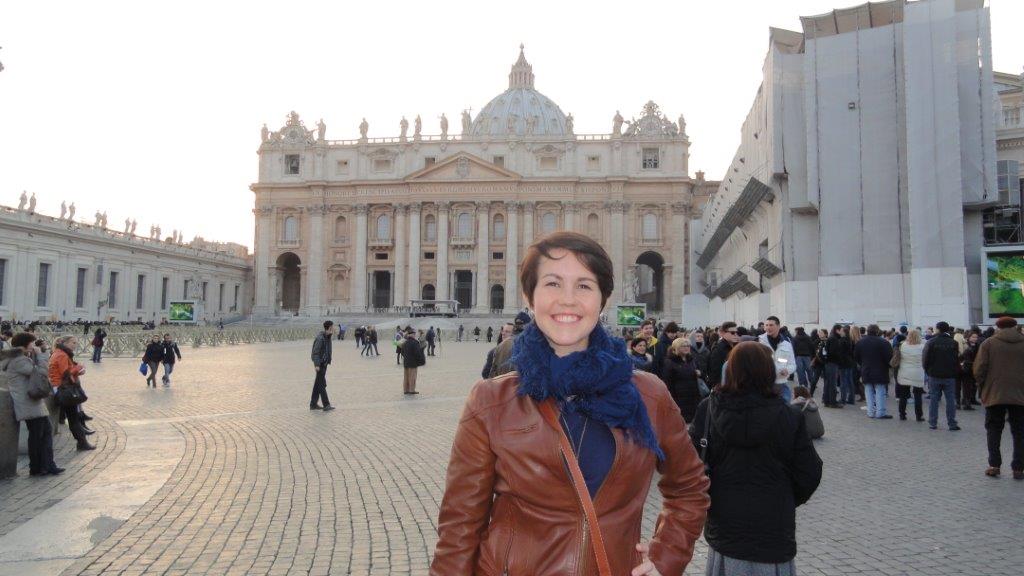
Avery Cobb, an undergraduate student majoring in geography, is in Rome, Italy, conducting an internship with the World Food Programme’s Emergency Preparedness and Response, GIS Team. She recently wrote a reflection on her internship, and it is published below: As one dream has led to another, I somehow find myself here, in Rome, Italy, interning with the world’s largest humanitarian agency fighting world hunger. I don’t think I ever actually imagined that any of this would have happened to me, but here I am. “They” always asked me what I would do with a degree in geography, and now I have an answer as to what I am doing.
Geology graduate student Erin Summerlin recently attended the Society of Economic Geologists Foundation’s 11th Student Field Course titled, “Precious Metals Deposits of the Southwestern U.S.” Selection for the program is rigorous and 19 total participants were accepted from the U.S., Canada, Argentina, Colombia, Brazil, Australia, United Kingdom, Ireland, Germany, Bulgaria and Mongolia. The course involved a weeklong trip to Nevada, Arizona and California, visiting both open-pit and underground mines that produce precious ores, including gold, silver, copper and molybdenum. Participants learned key dynamics of both high- and low-epithermal sulfidation and porphyry systems.
Alumni news: Khandaker Zahid (MS 2005) joins Chevron
Congratulations to Nur Uddin Md. Khaled Chowdhury for receiving an AAPG grant in aid through SEAPEX, the South East Asia Petroleum Exploration Society, for his thesis research on the petrofacies and geochronology of Gondwanan sequences in South Asia.
Chris Marlow was recently awarded the Alabama Geological Society's John G. Newton Scholarship for 2012.
Congratulations to Ryan Hile for receiving the 2013 David W. Icenogle Award for Outstanding Senior in Geography.
Congratulations to Cheryl Wilkes, who got into the NASA Planetary Volcanology Field Workshop in Hawaii
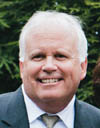
James Saunders, professor in the Department of Geology and Geography, received a three-year National Science Foundation grant for his research project titled, "Transport and Deposition of Metallic Nanoparticles as a Hydrothermal Ore-forming Process." The grant is supported by the Petrology and Geochemistry program and will allow Saunders to expand his research in the realm of metallic nanoparticle transport, particularly those involved in the formation of shallow deposits of gold and silver, which were the type of precious-metal ores commonly mined in the western U.S. in the 1800s.
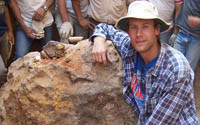
Has there ever been life on Mars? Shawn Wright, a postdoctoral fellow in the Department of Geology and Geography suggests we can only answer that question by looking in the right places, including deep craters on Mars.
COSAM held the Dean’s Research Awards ceremony on March 6. The awards provide the dean with an opportunity to acknowledge outstanding COSAM faculty and students for their research and scholarly accomplishments.
Alexandria, VA – New data collected by the American Geosciences Institute (AGI) and published in Geoscience Currents 68 reaffirms a decade-long trend of continued growth in U.S. undergraduate enrollments in the geosciences during the 2011-2012 academic year.
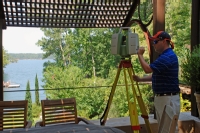
Luke Marzen, professor in the College of Sciences and Mathematics, or COSAM, and Art Chappelka, professor in the School of Forestry and Wildlife Sciences, or SFWS, spurred collaboration between Auburn University and the U.S. Geological Survey Alabama Water Science Center to produce an exact, three-dimensional model of the Toomer’s oaks. The model provided both a means of measuring the overall health of the trees, as well as documentation of the historic oaks. It was produced using a tripod-mounted laser scanner, also known as terrestrial light detection and ranging, or T-LiDAR. The T-LiDAR sends out a laser that scans anything within range and produces a three-dimensional replica.
COSAM named two recipients of the 2012 Dean’s Outstanding Outreach Award, David King, professor of geology, and Ash Abebe, associate professor of mathematics and statistics. The annual Outstanding Outreach Award is given to COSAM faculty members with recent records of service and outreach performance that extend beyond normal expectations.
Luke Marzen has been a geography professor at Auburn for 10 years. Originally from Iowa, Marzen said he has grown to love Auburn, especially the traditions surrounding university athletics. “I have rolled Toomer’s corner a couple of times but more than anything, I like to go there after football wins and just enjoy the atmosphere,” Marzen said. “I was in Washington for the annual Meteorology Society meeting when the news broke that the trees had been poisoned. I was pretty shocked when I heard. My first thought was of trying to contact my former student, Dusty Kimbrow (’08), to do a scan of the trees.”

